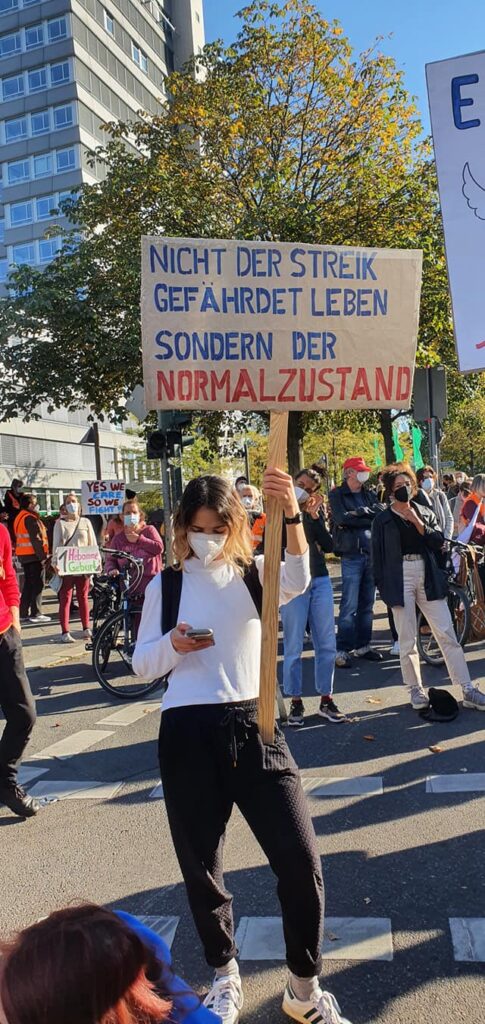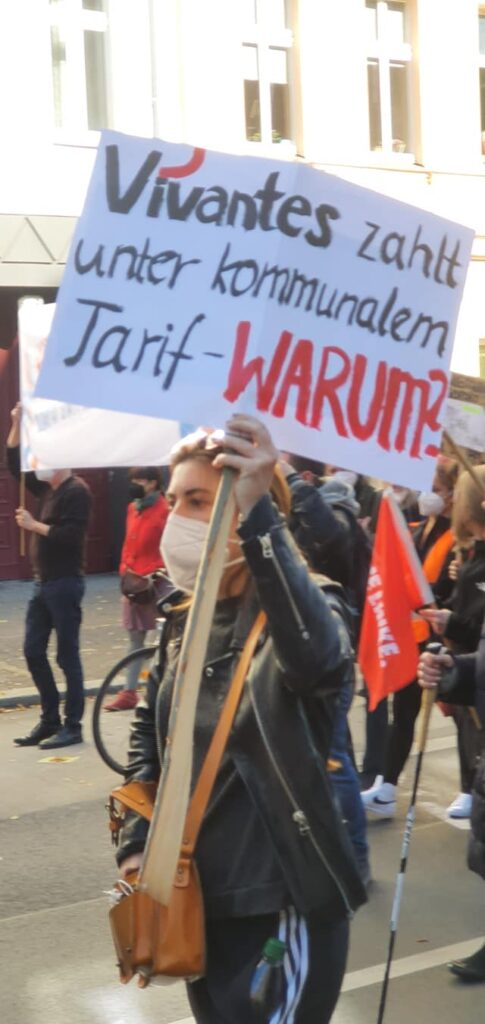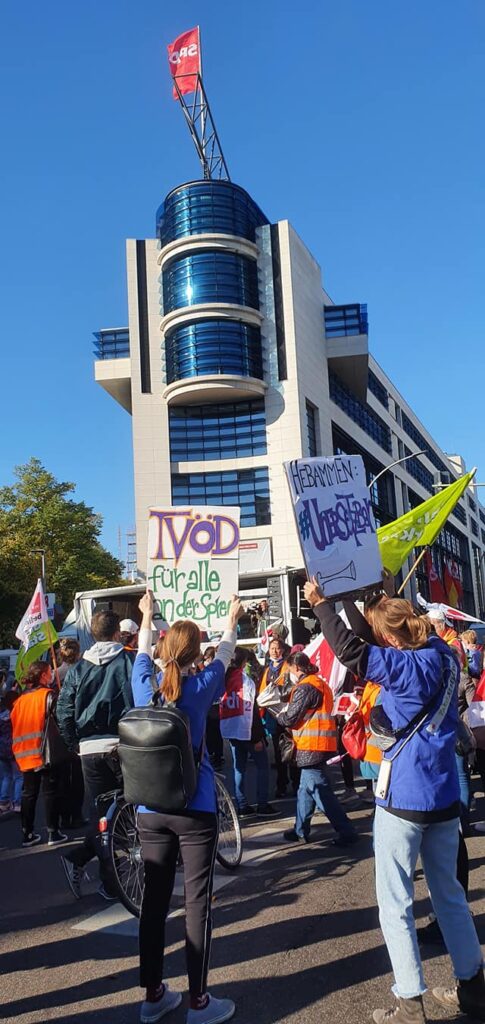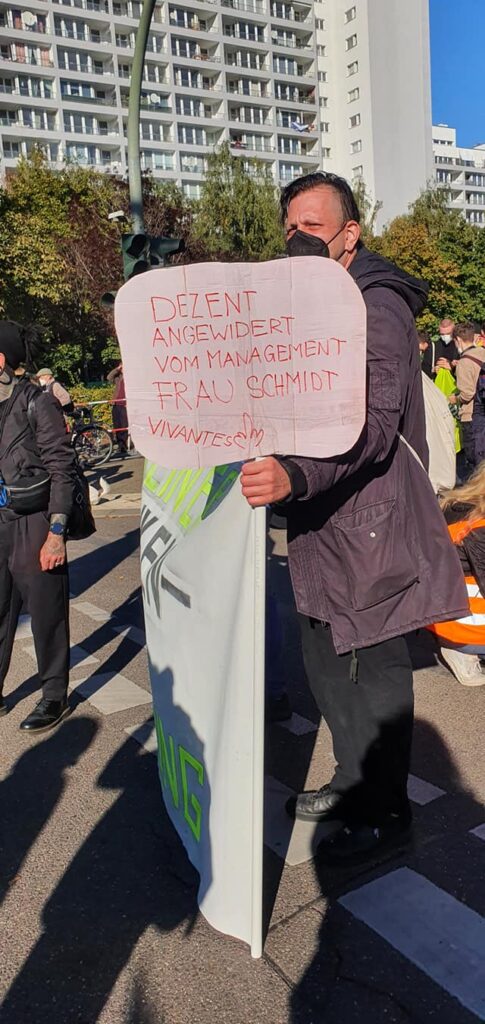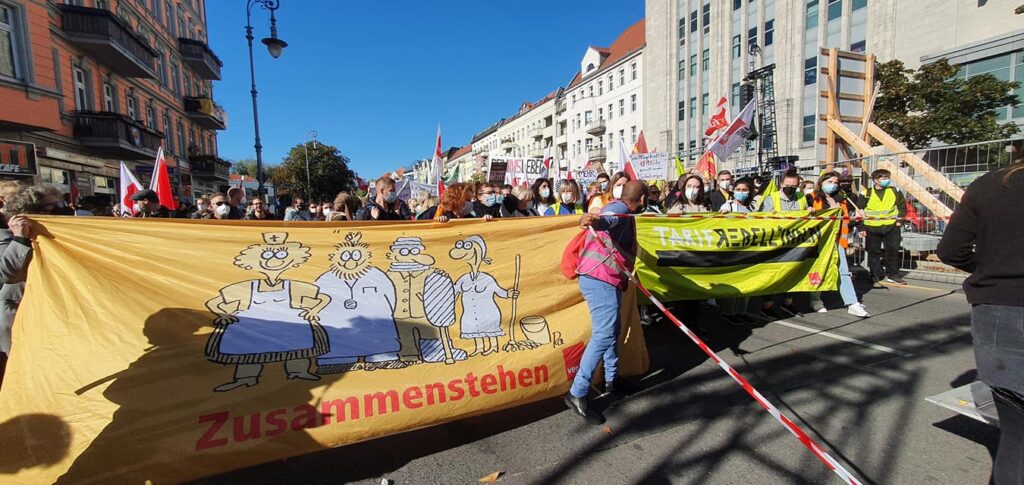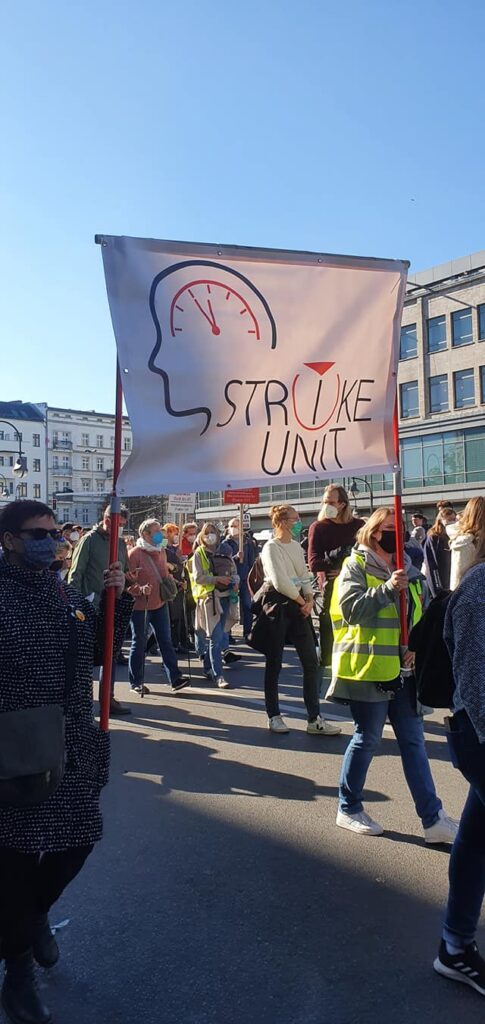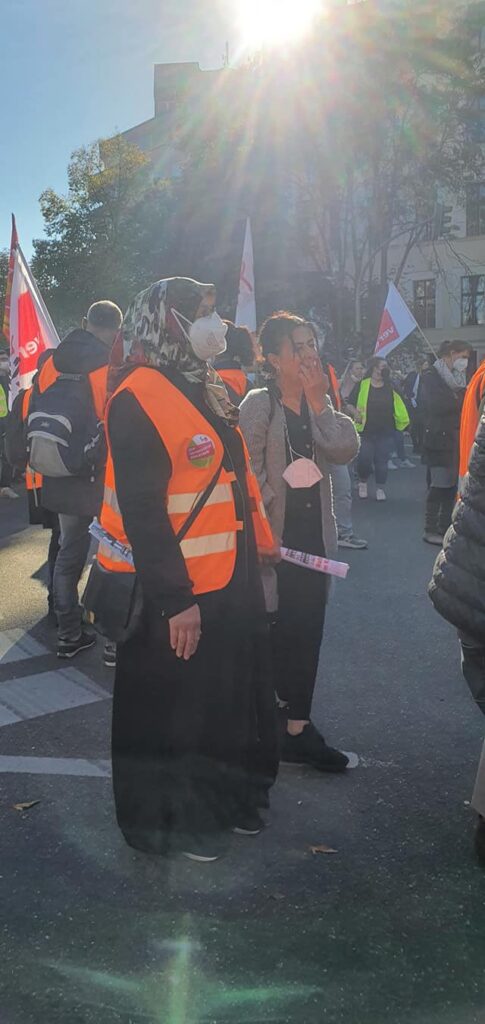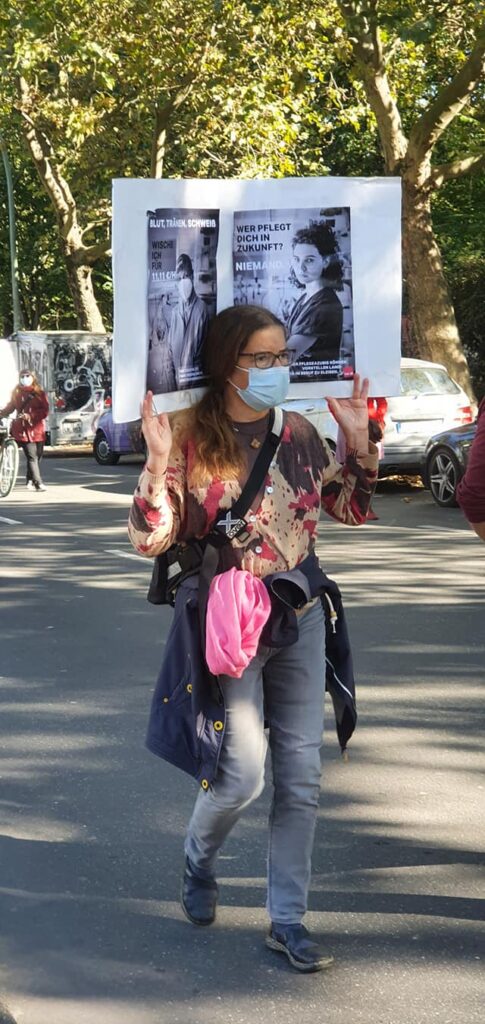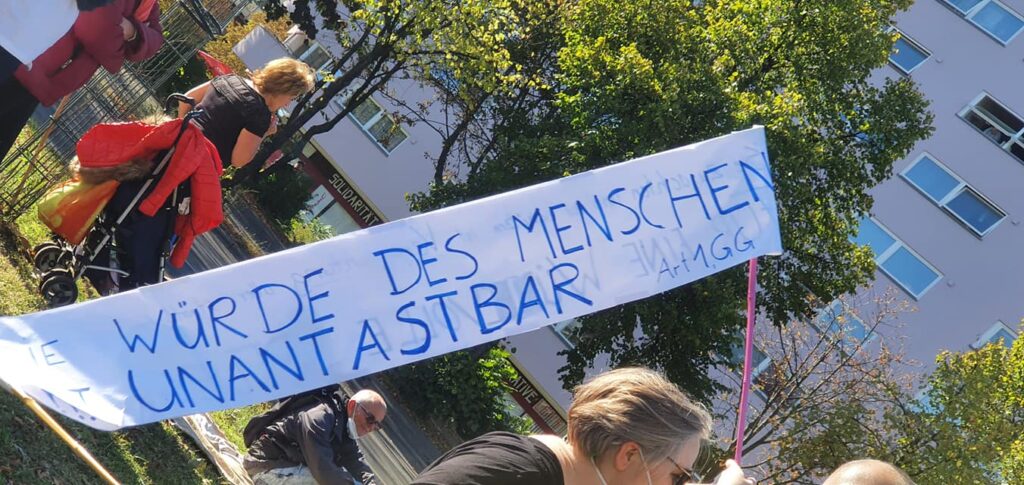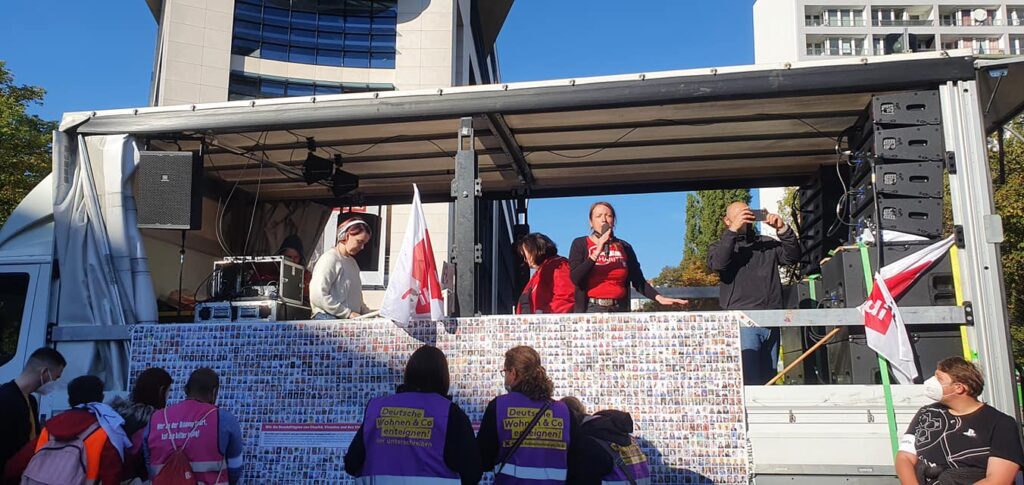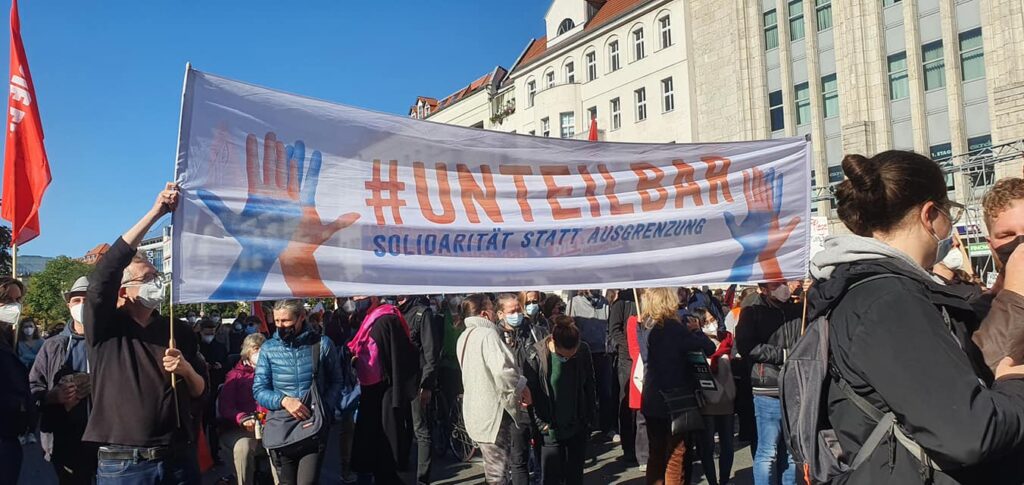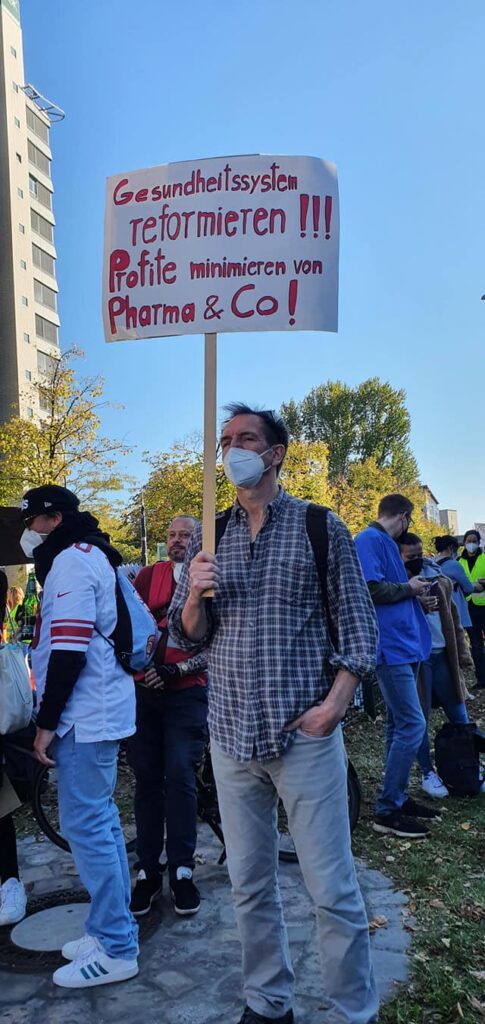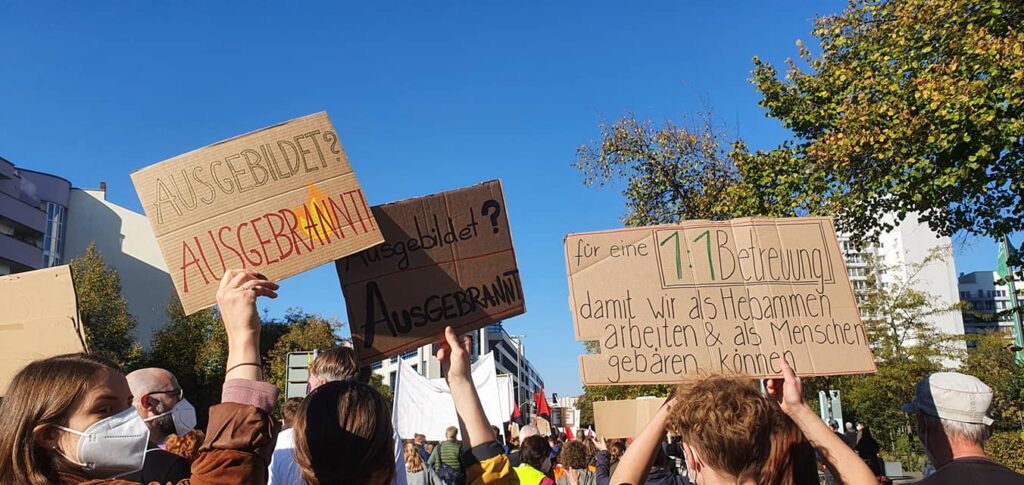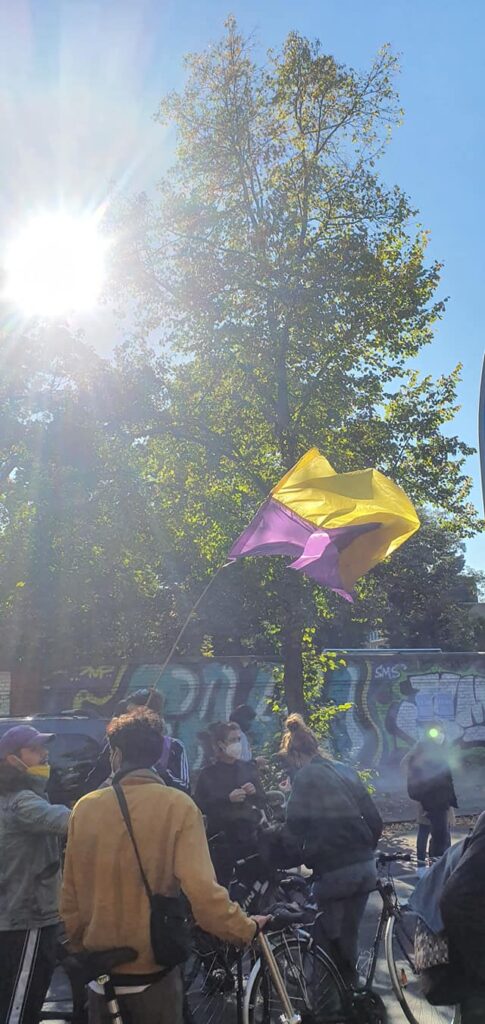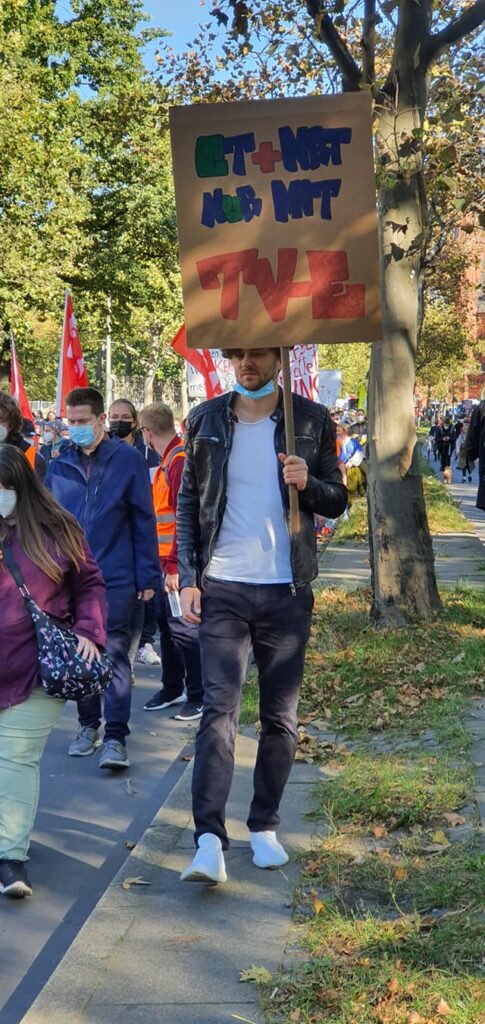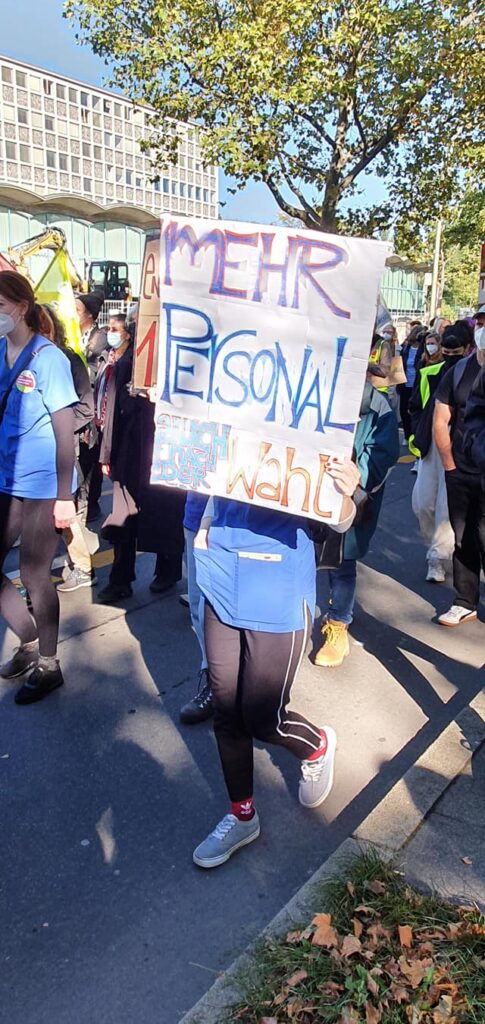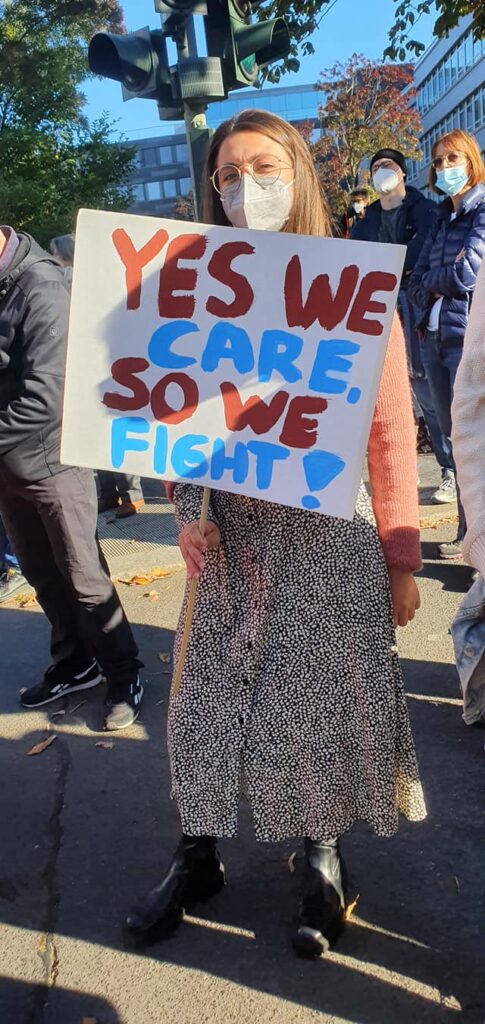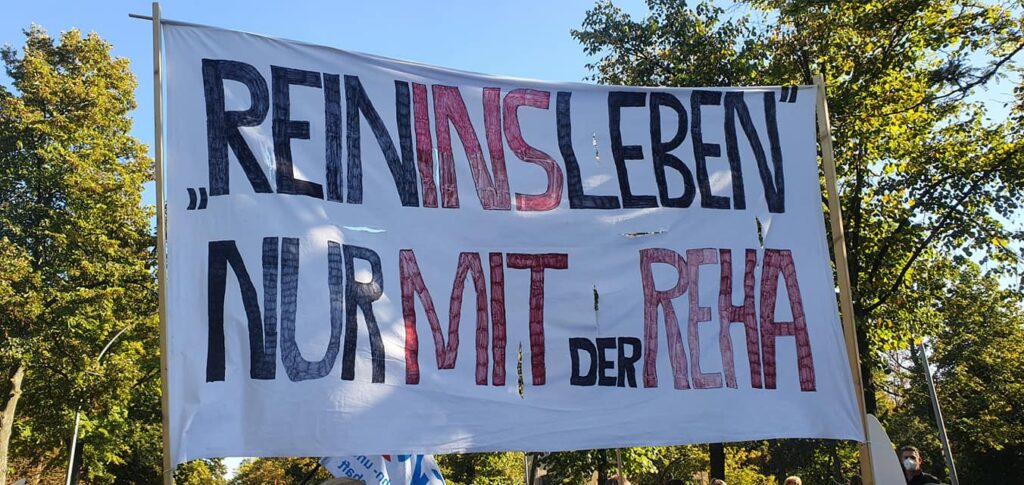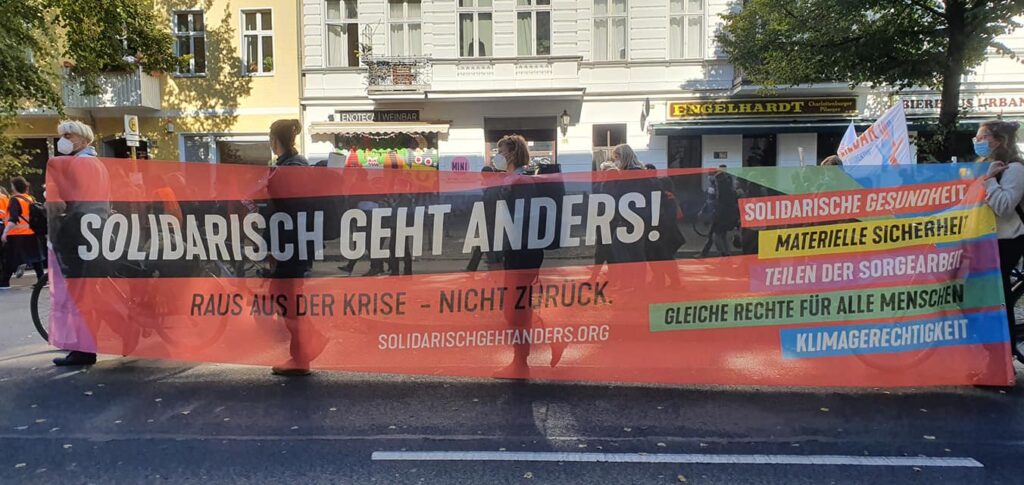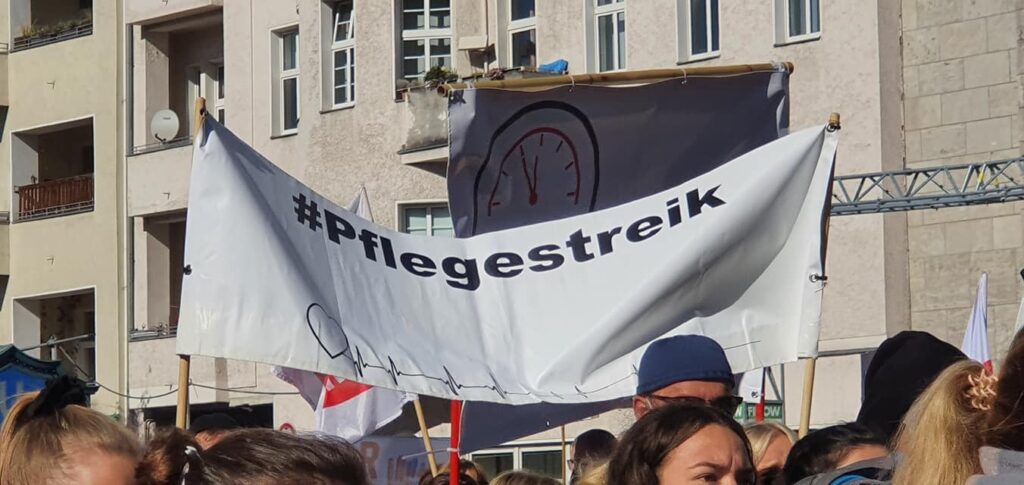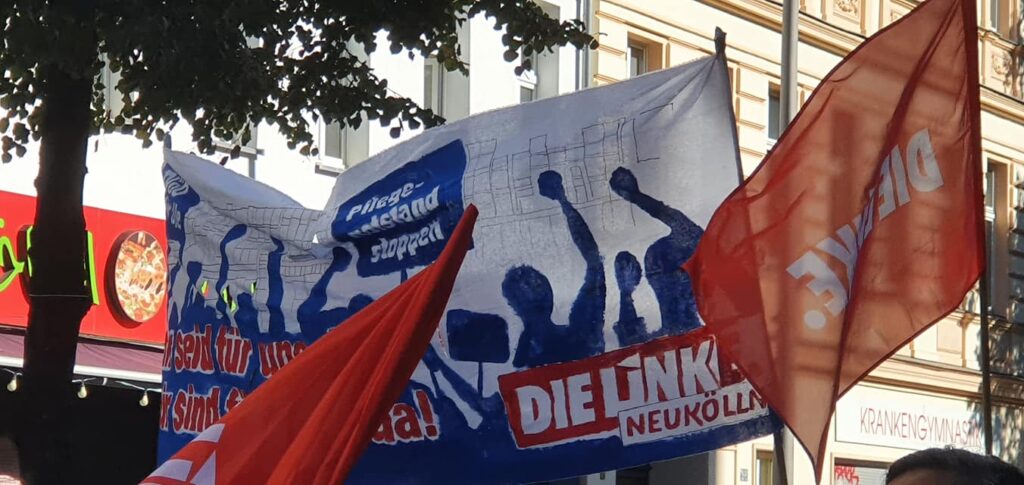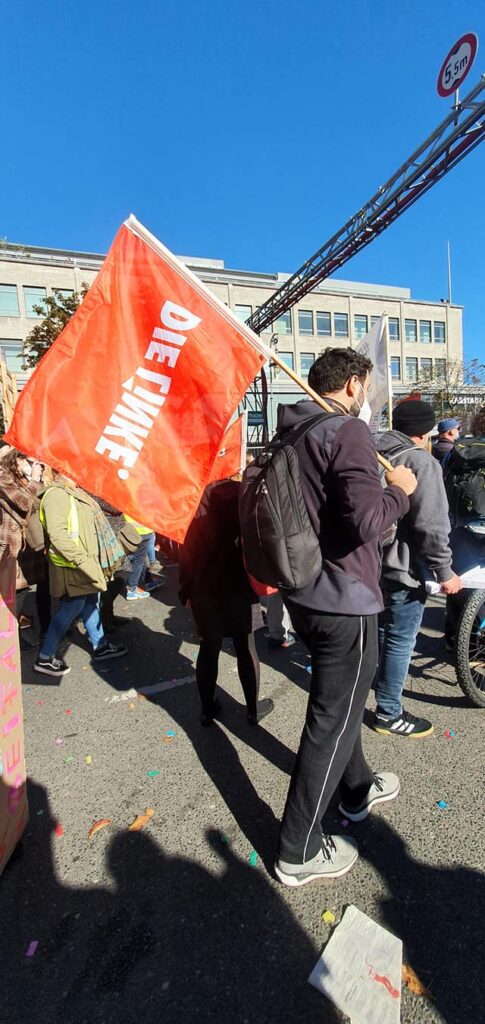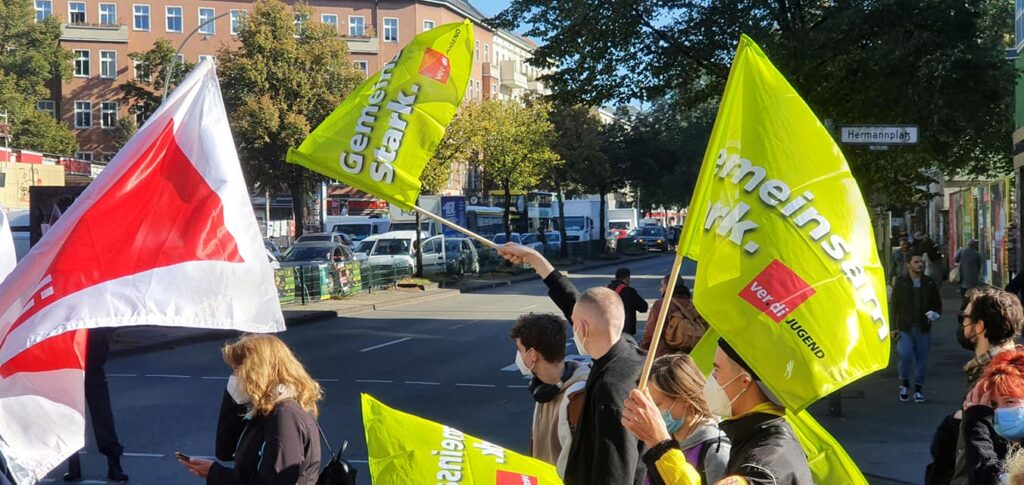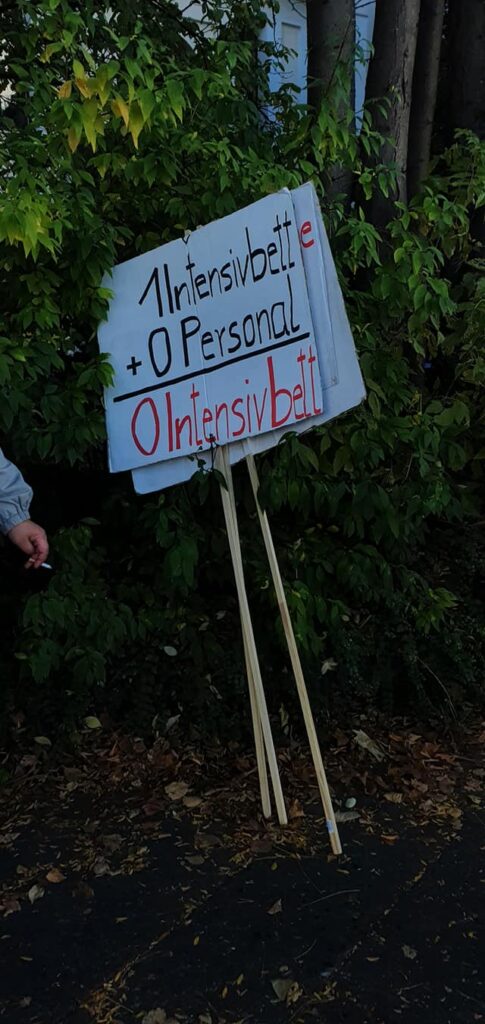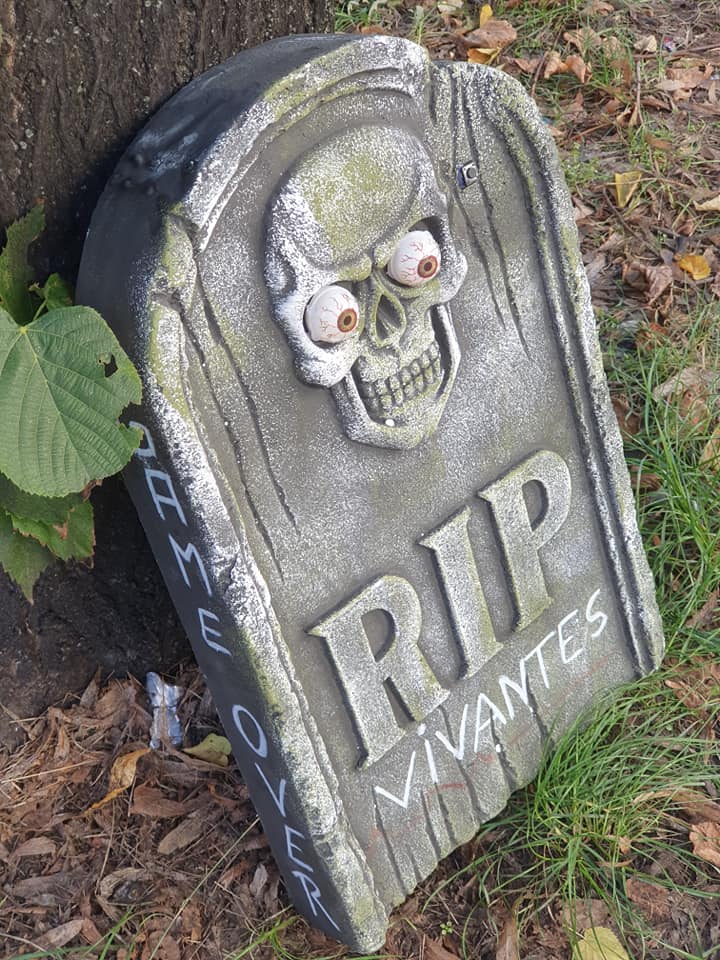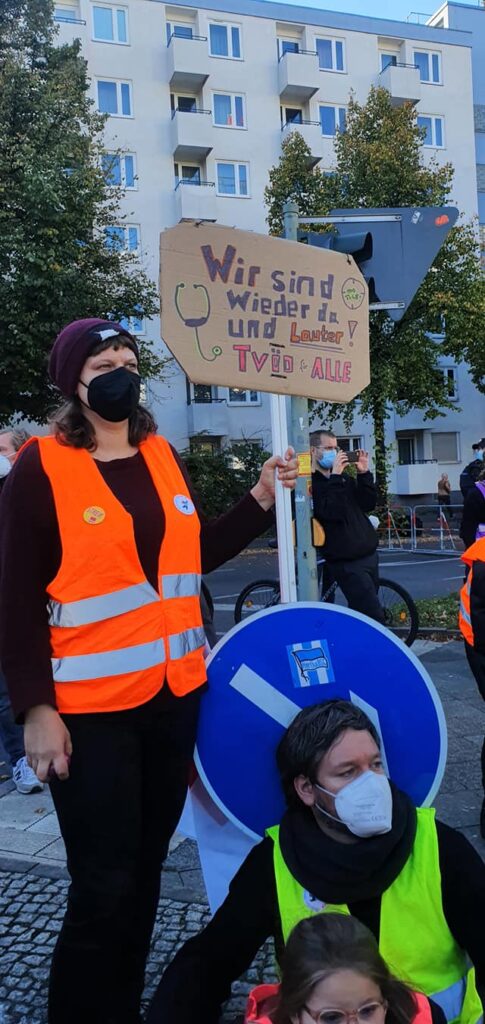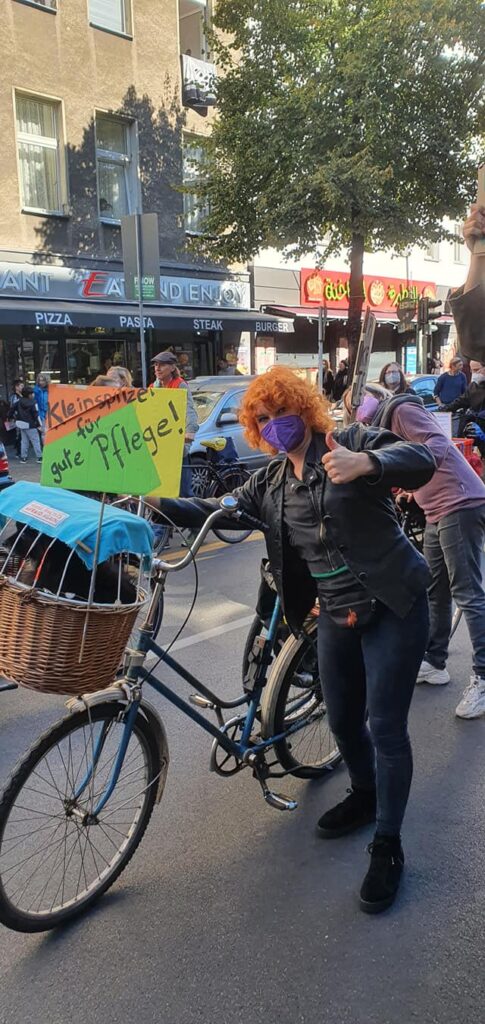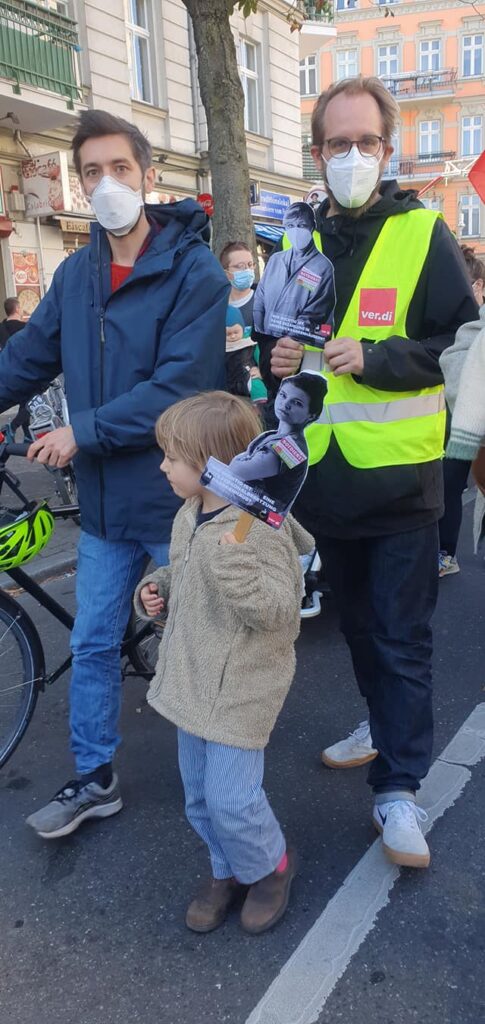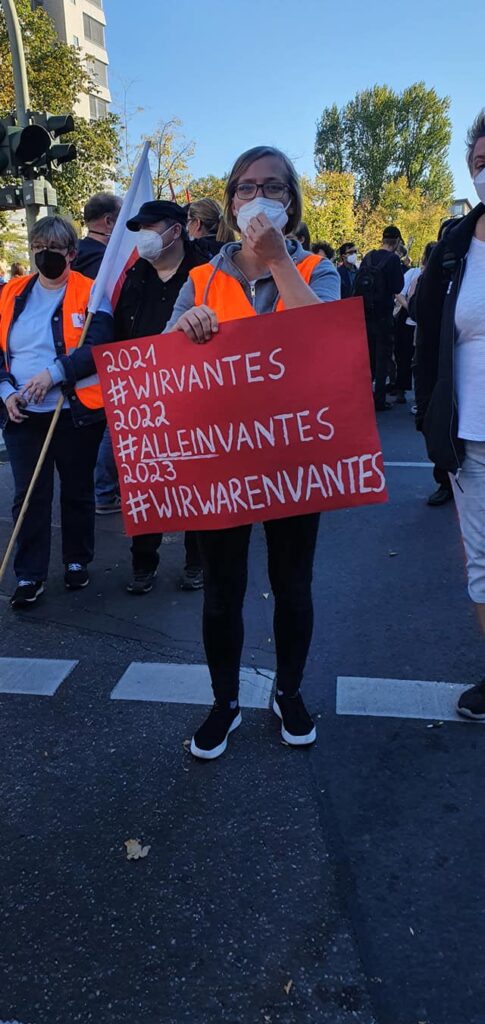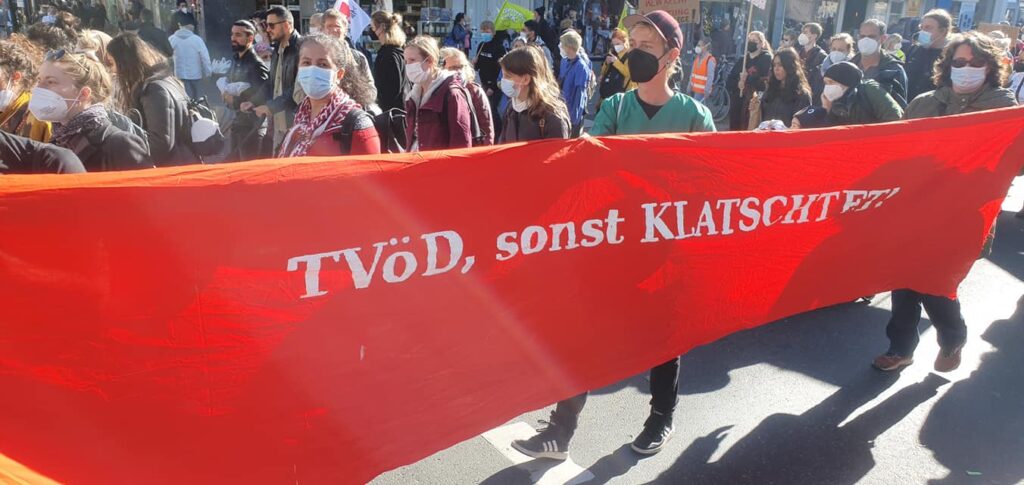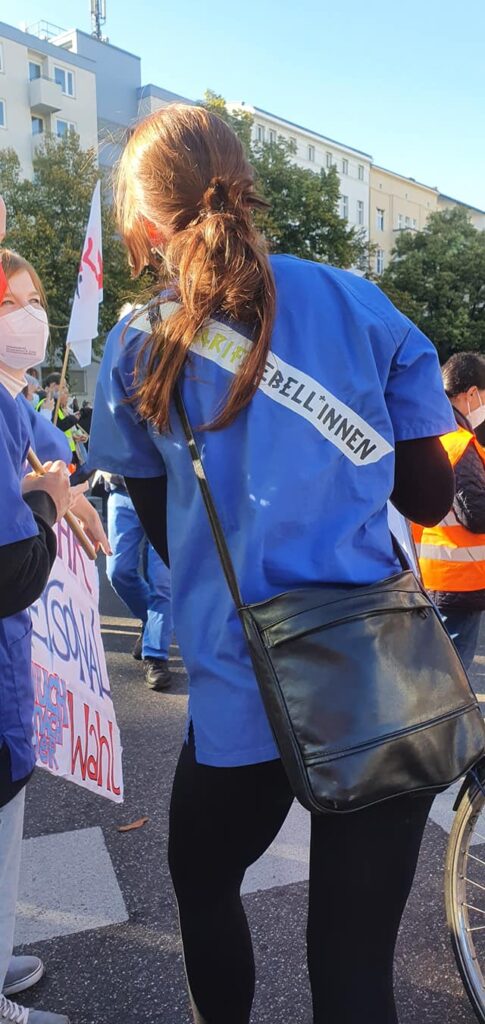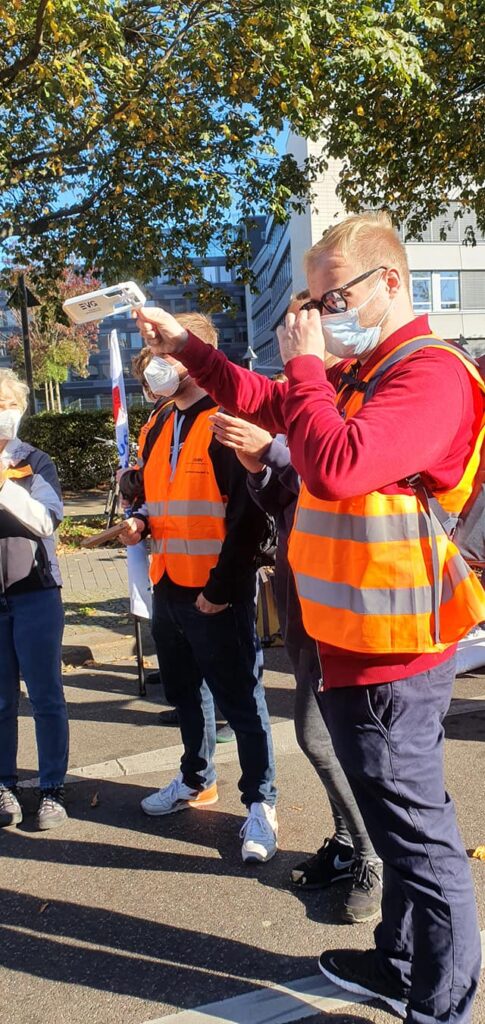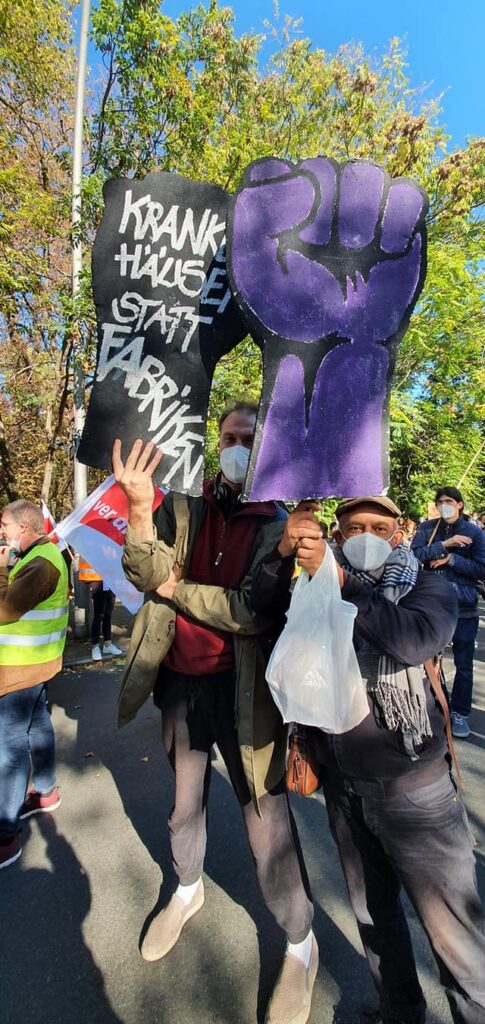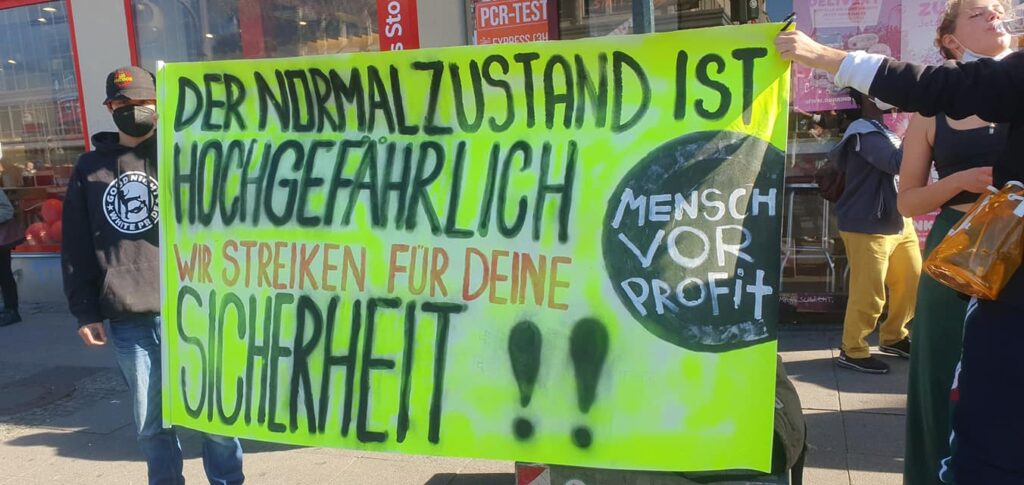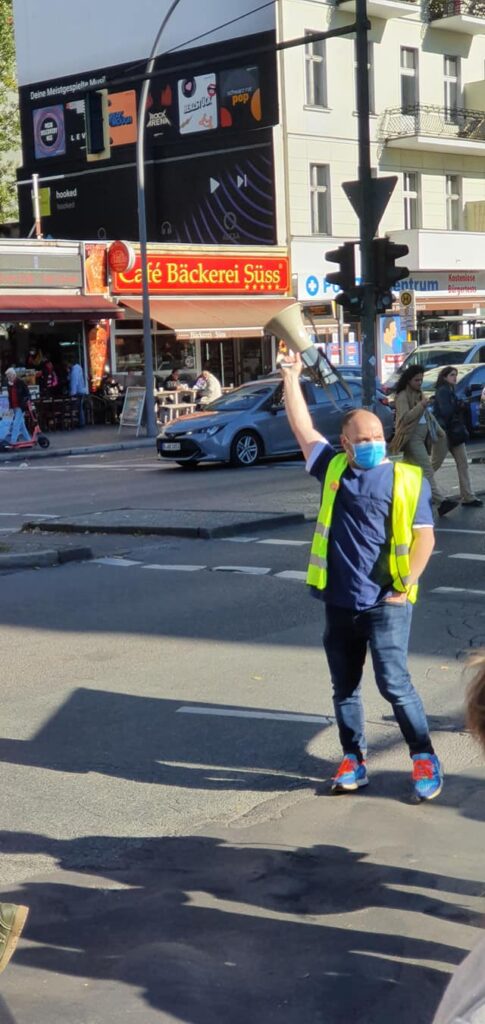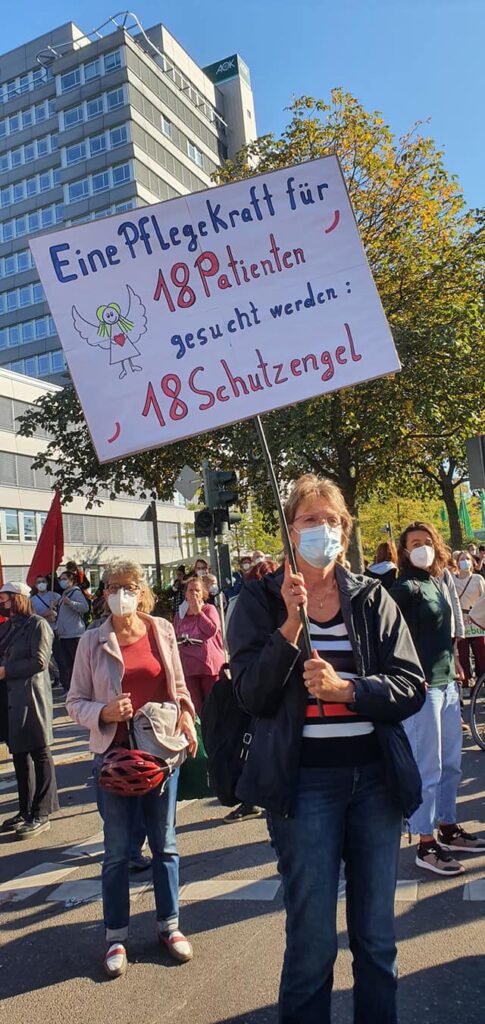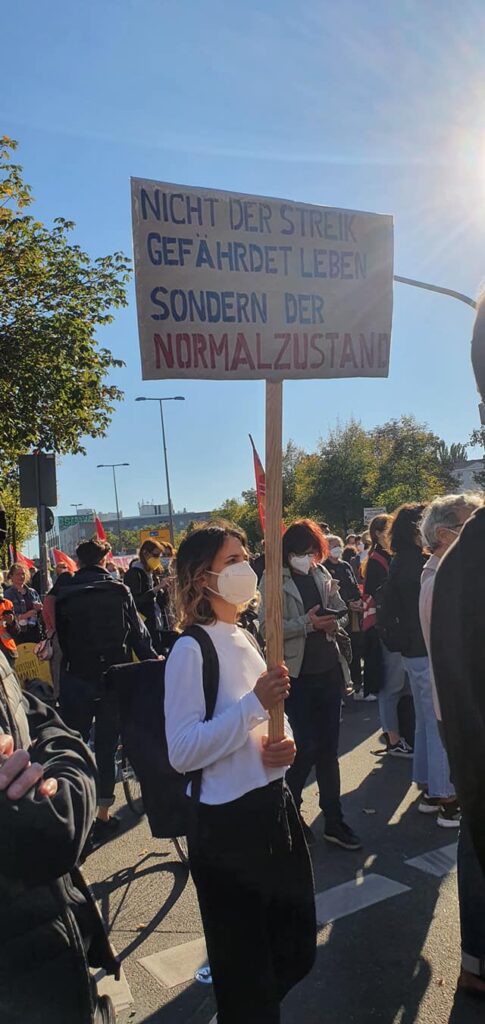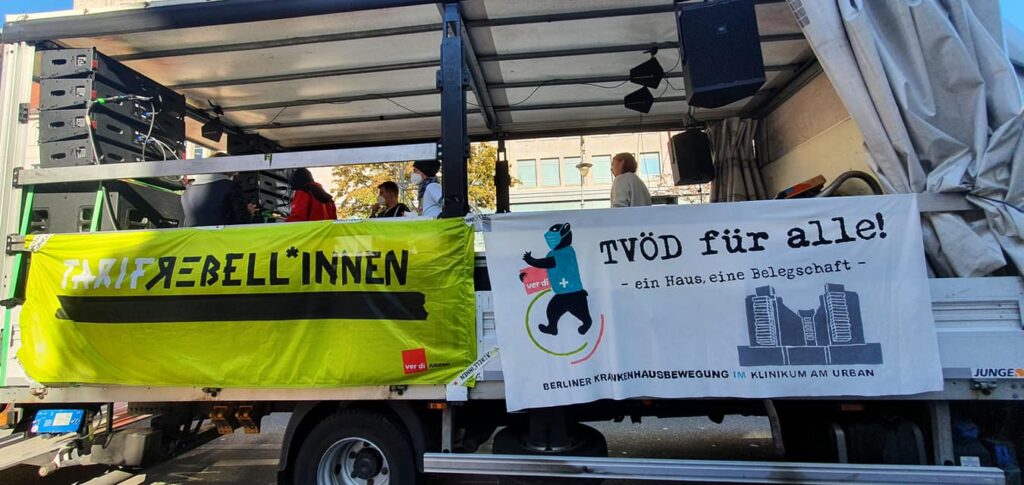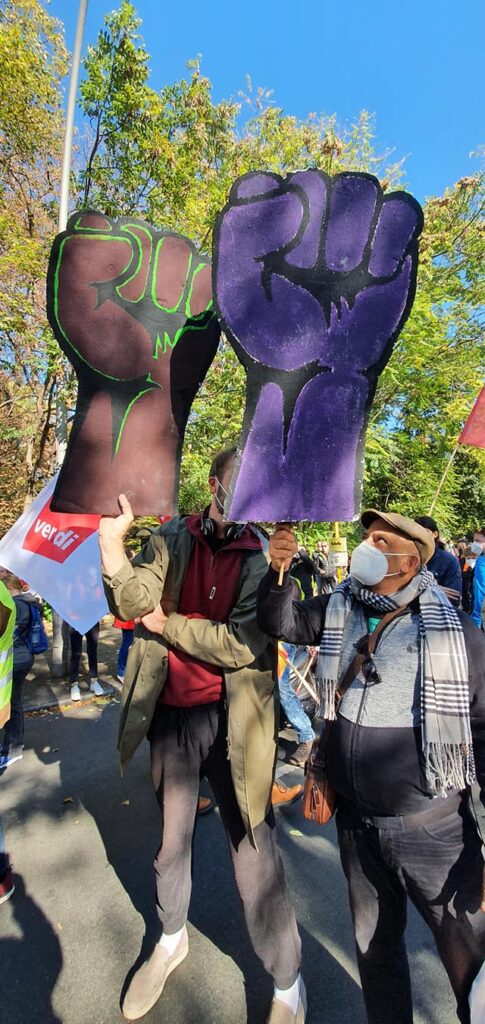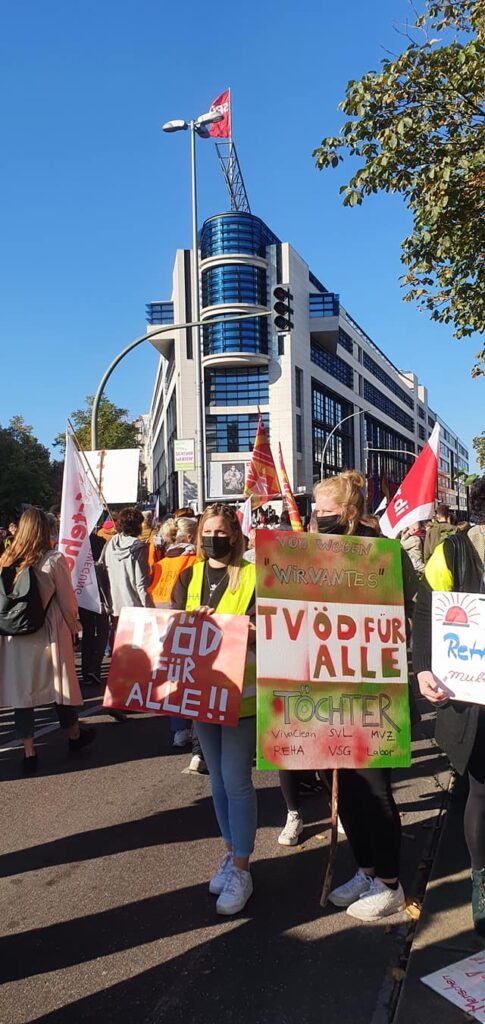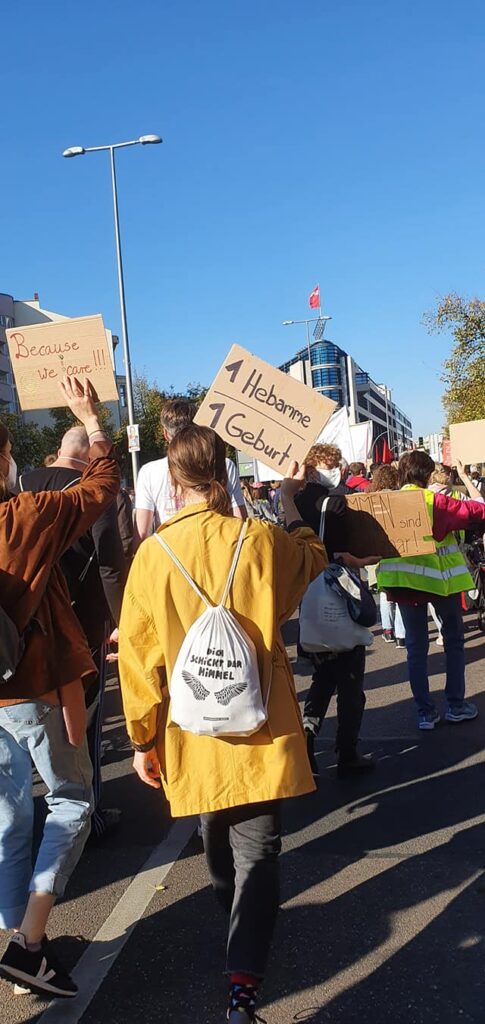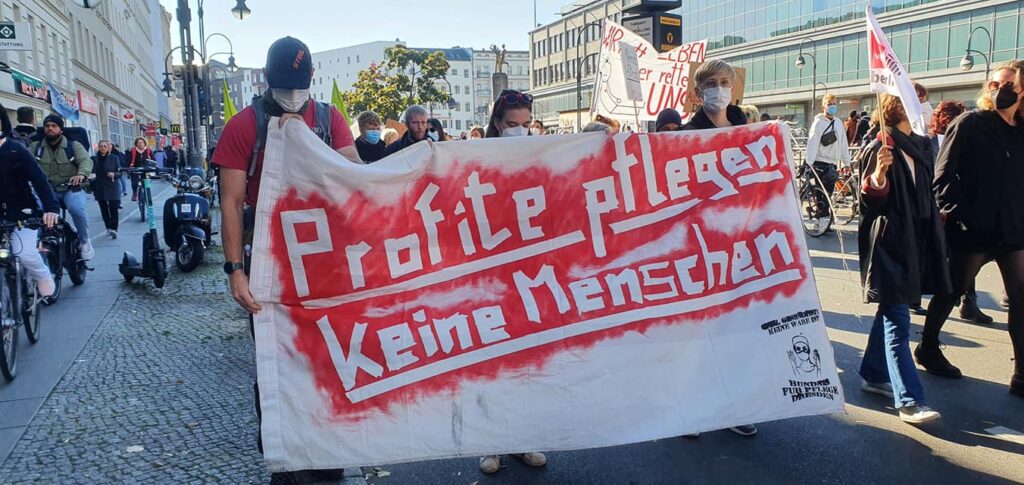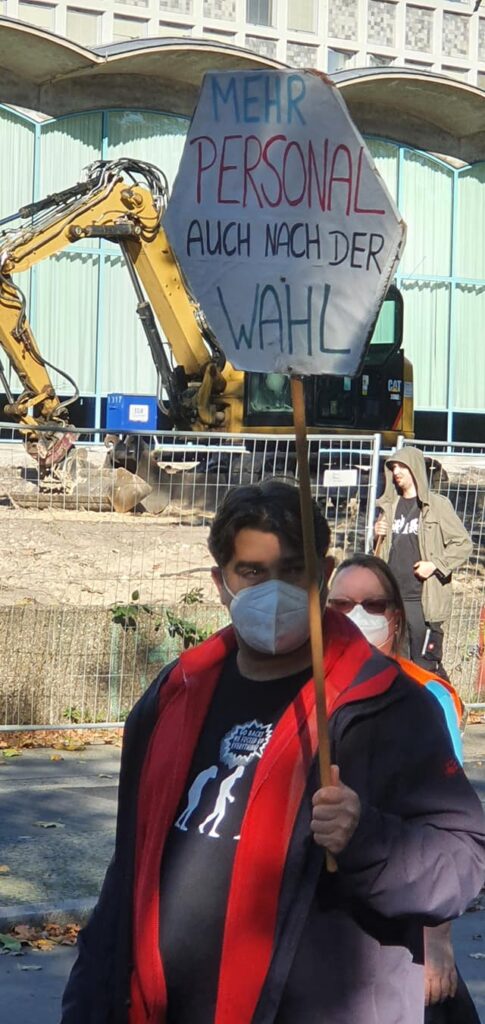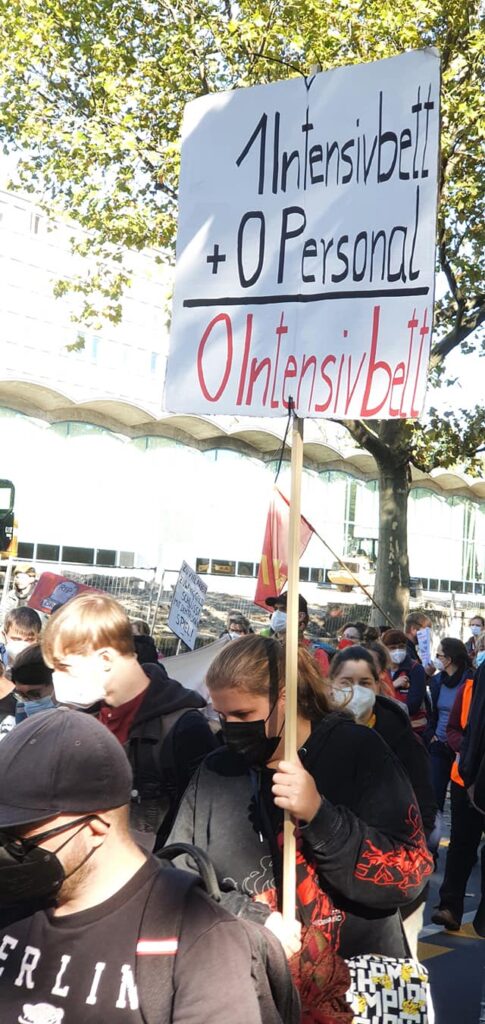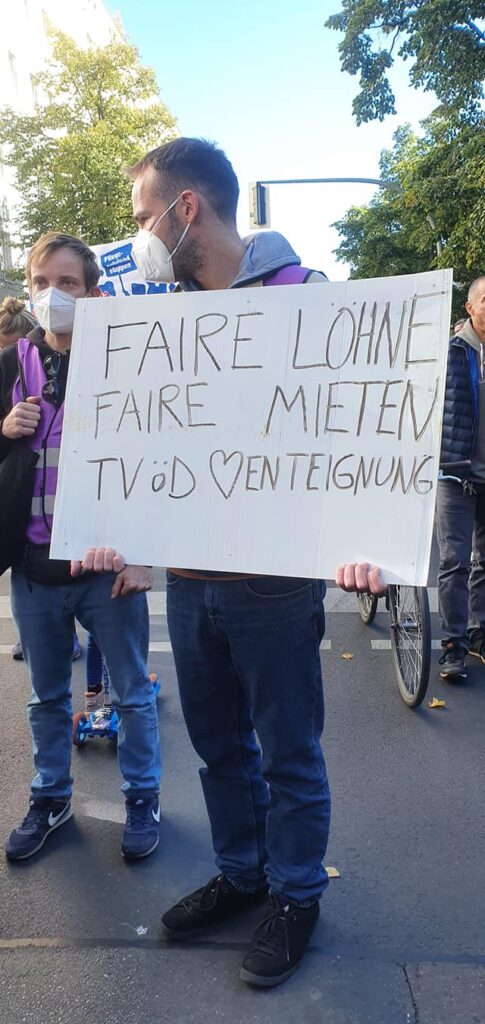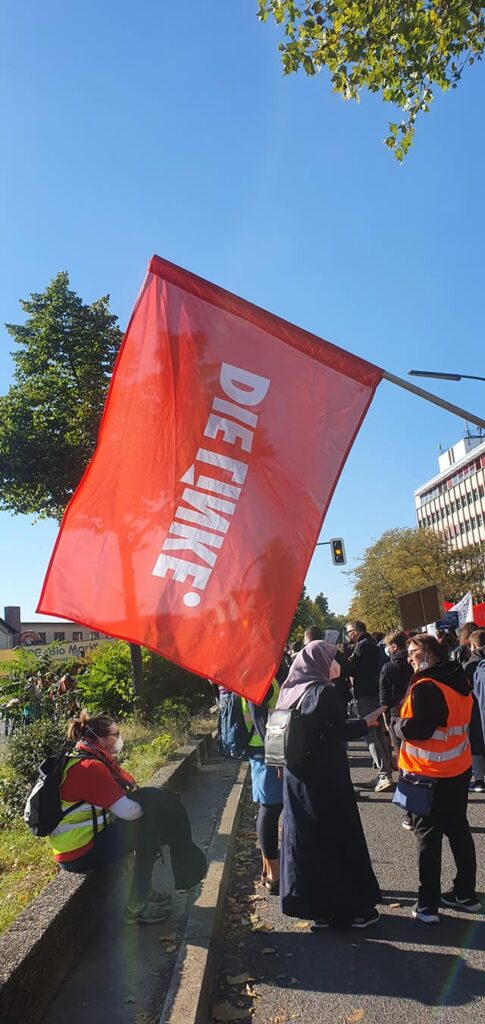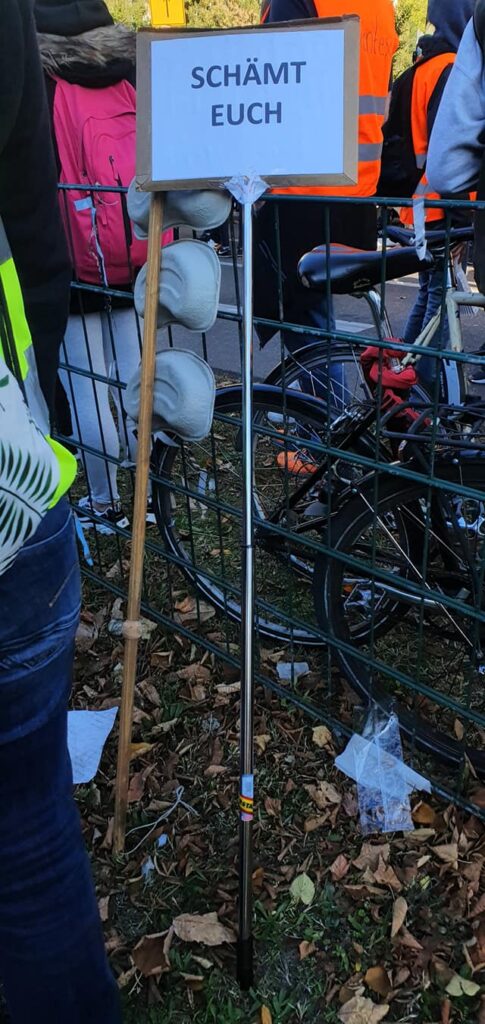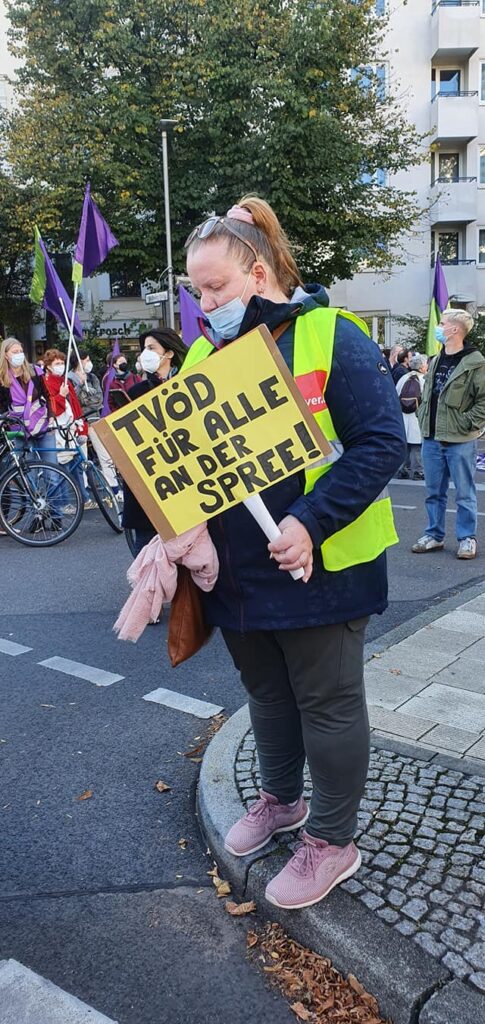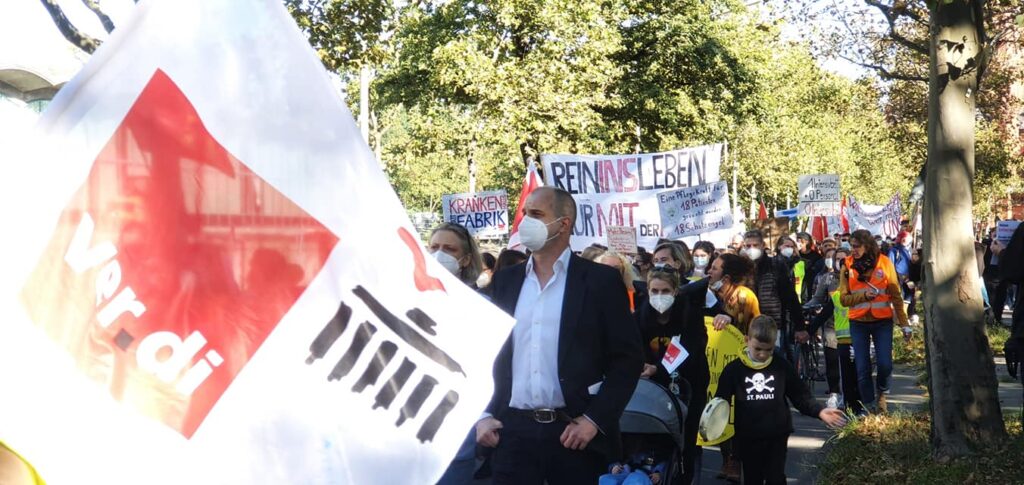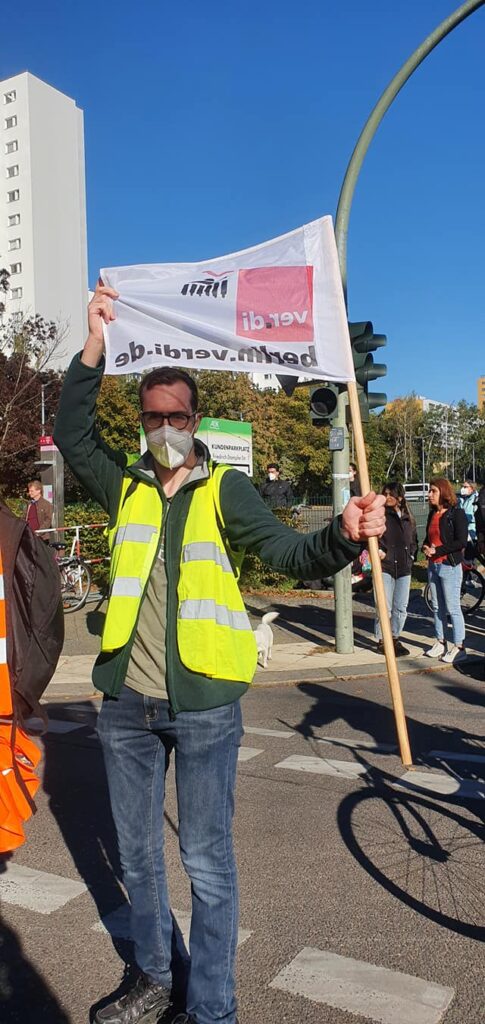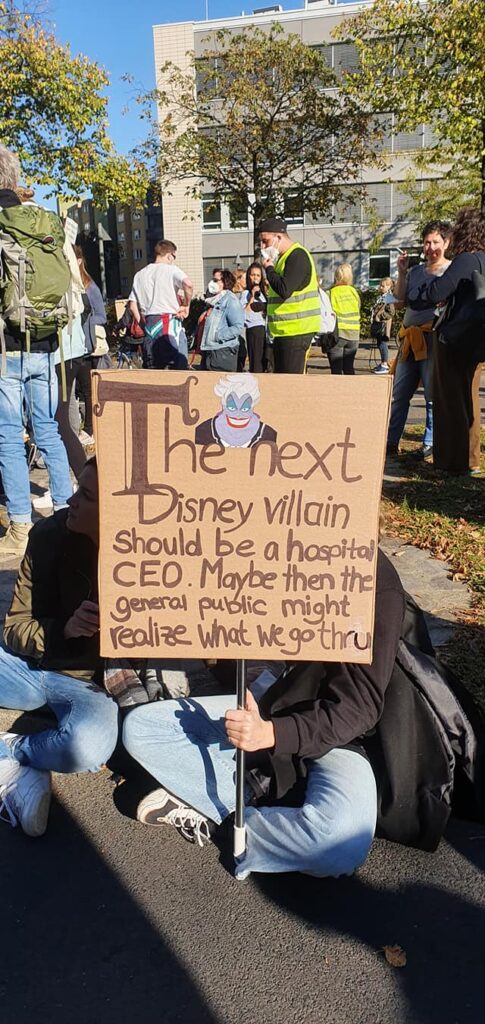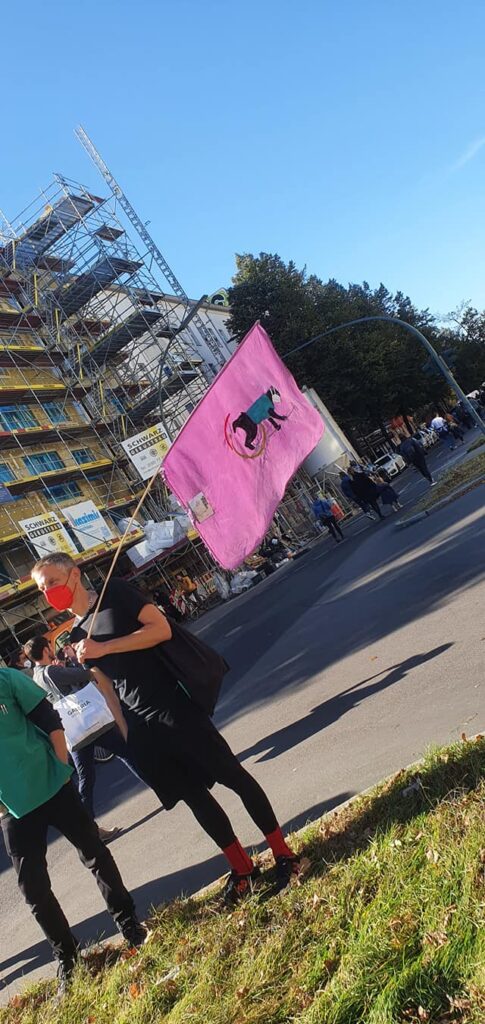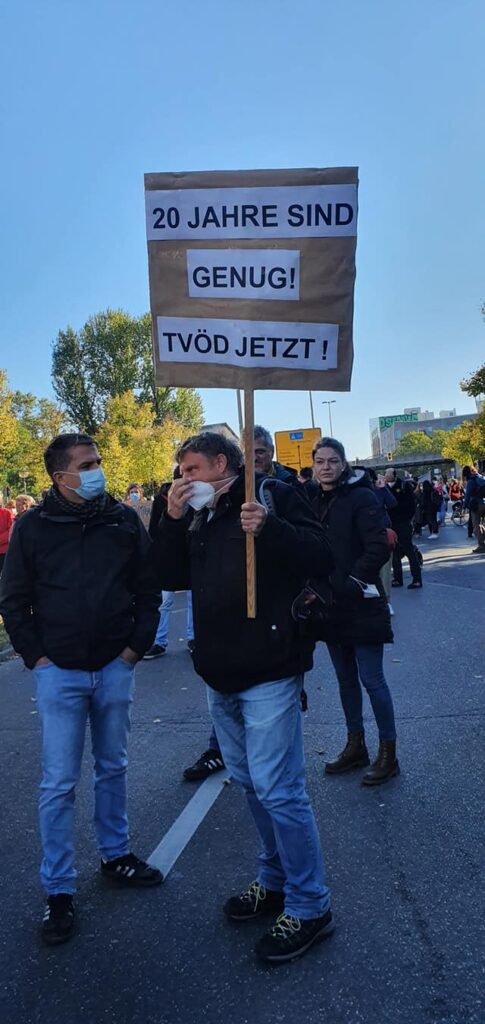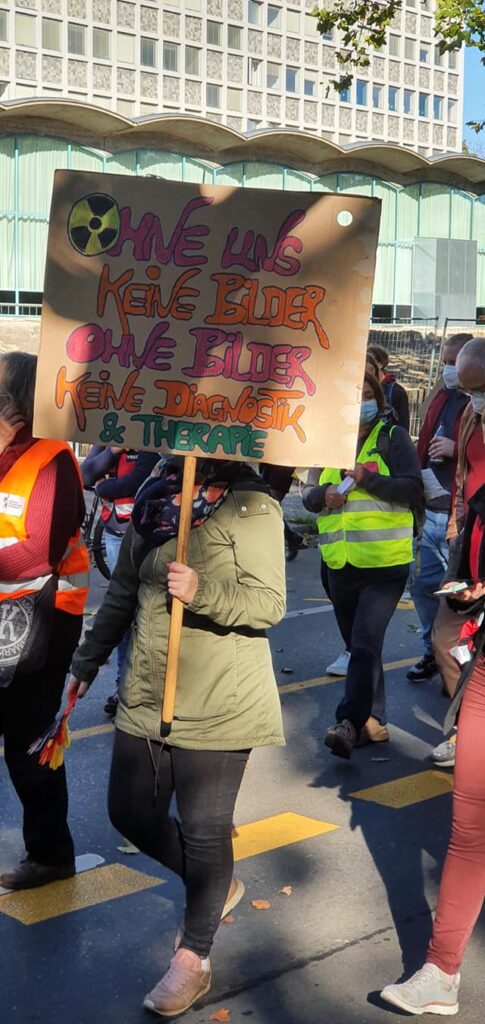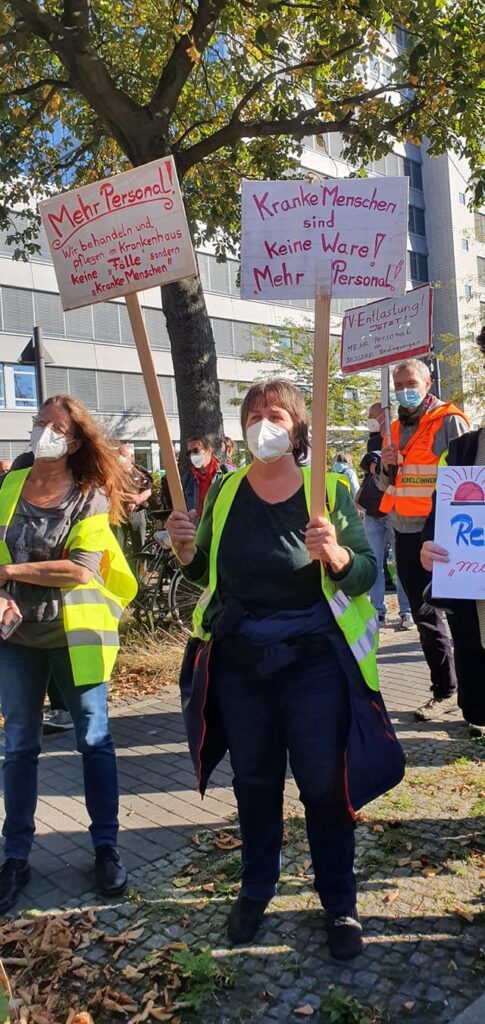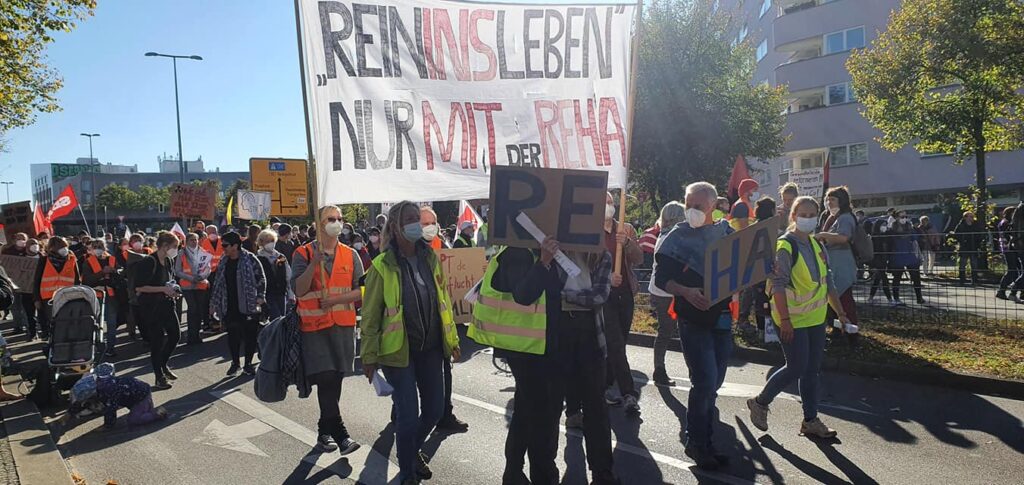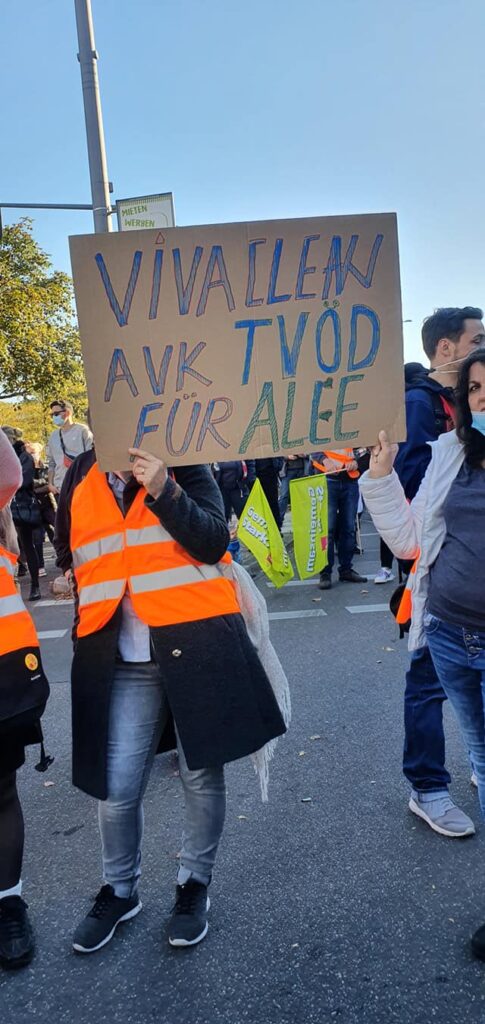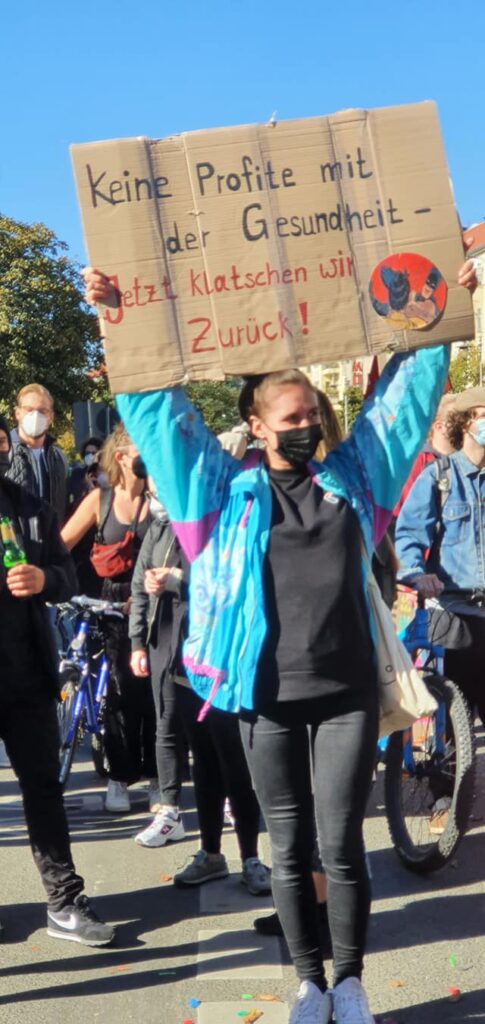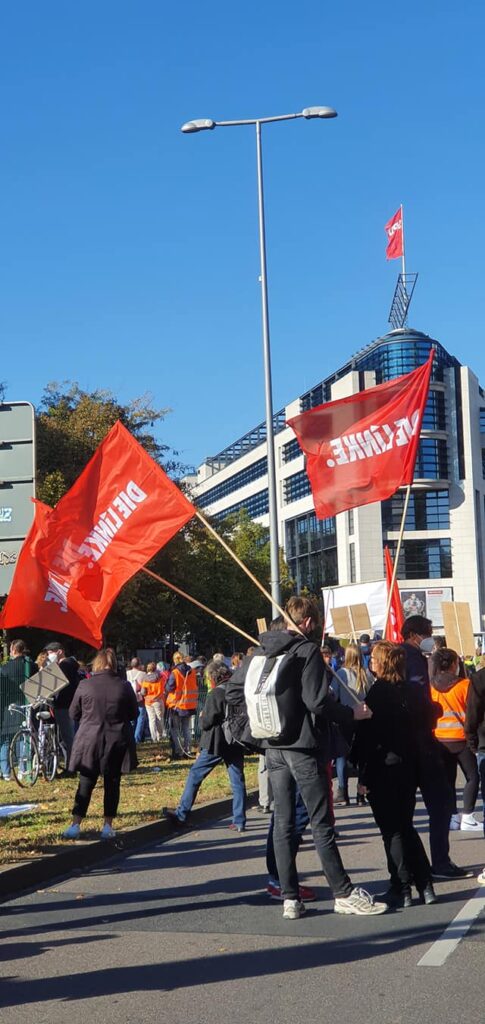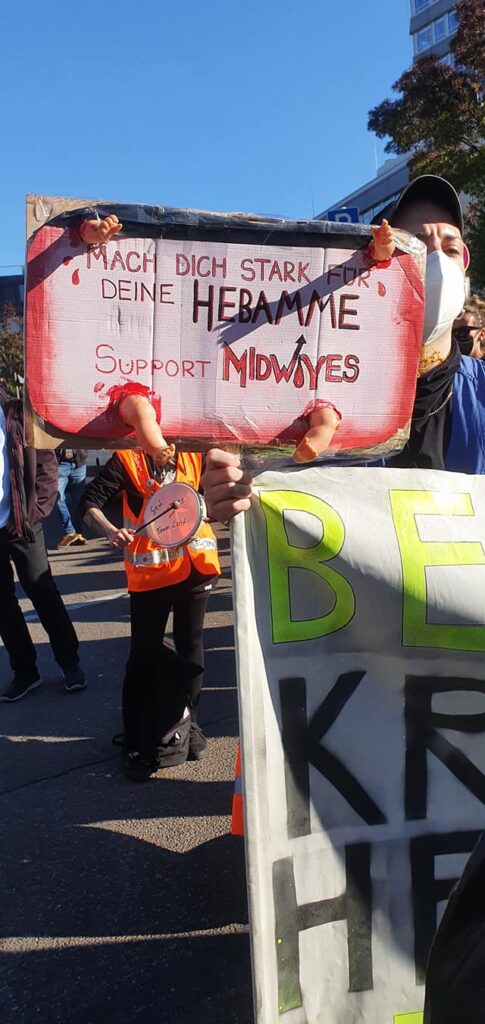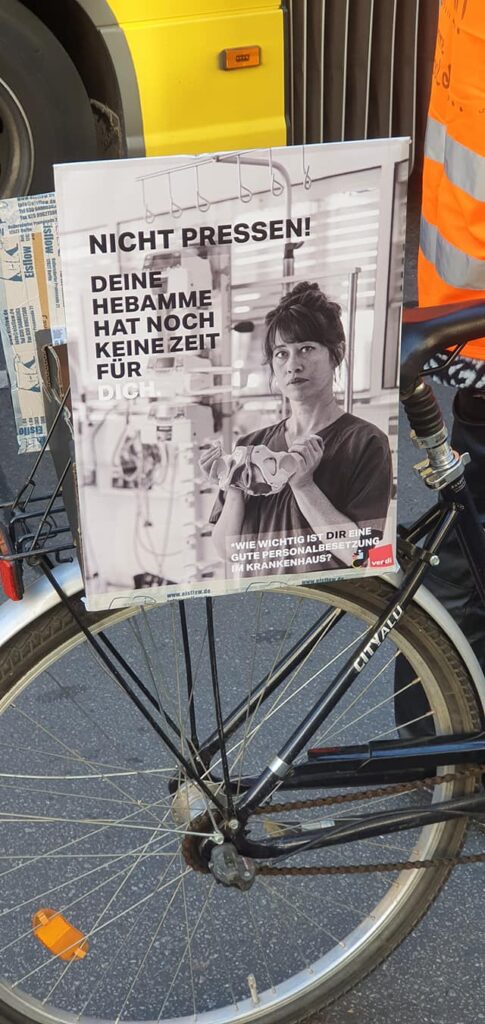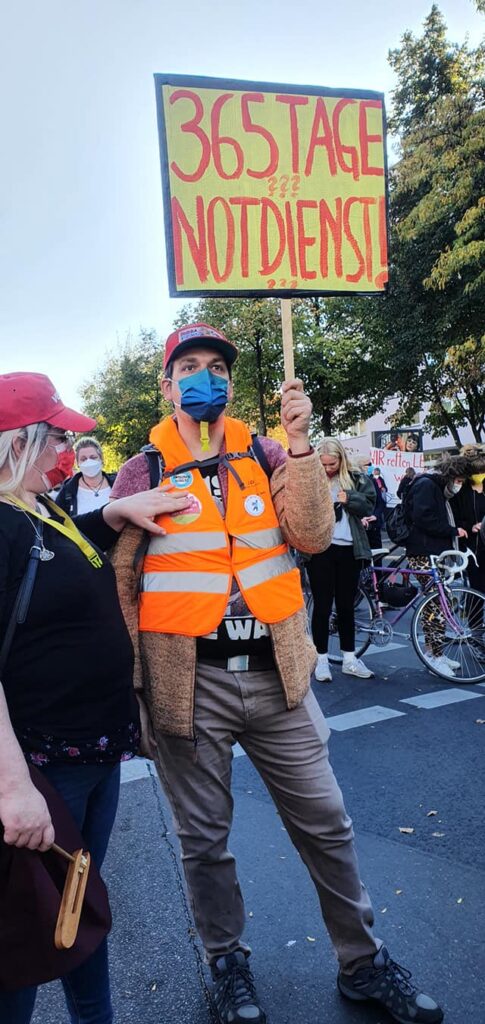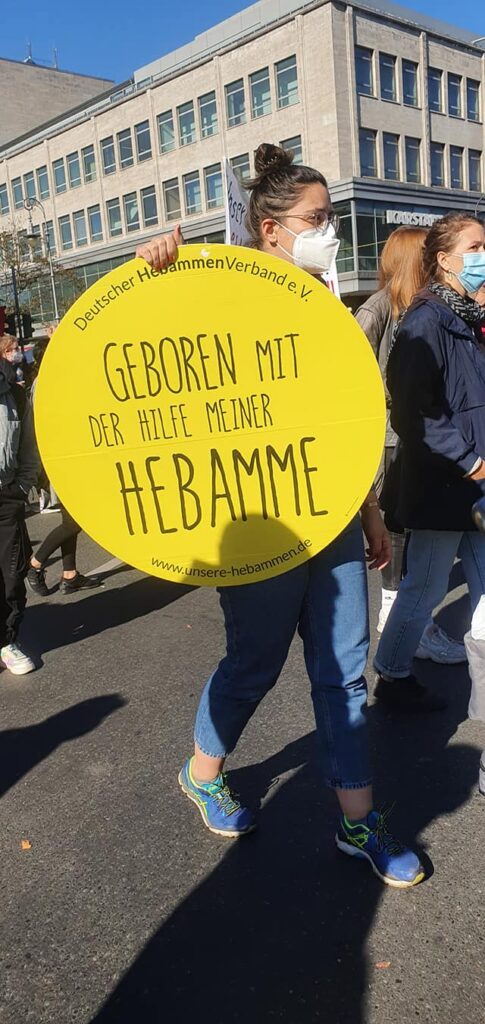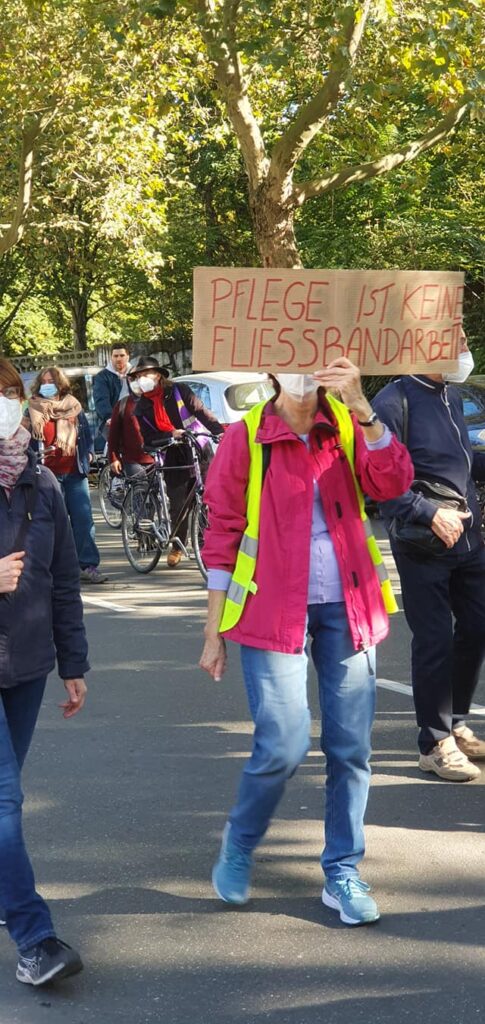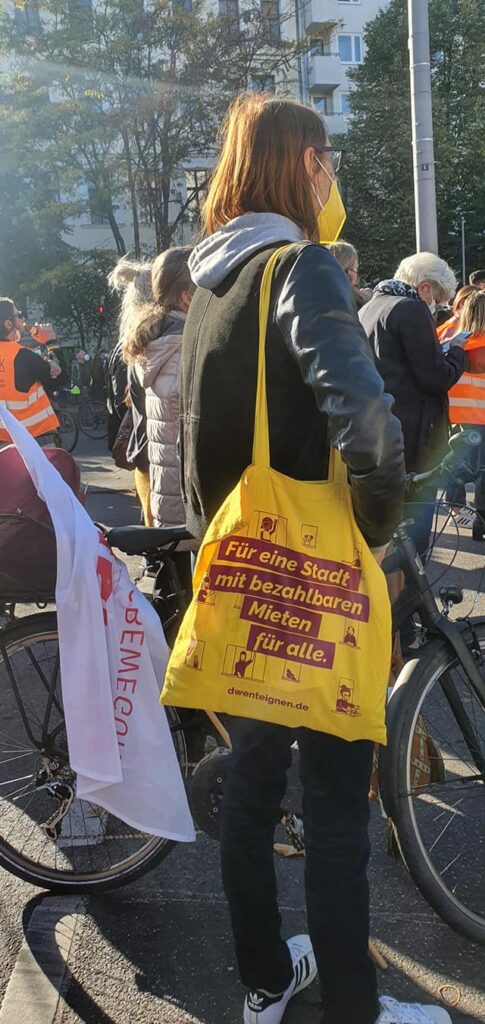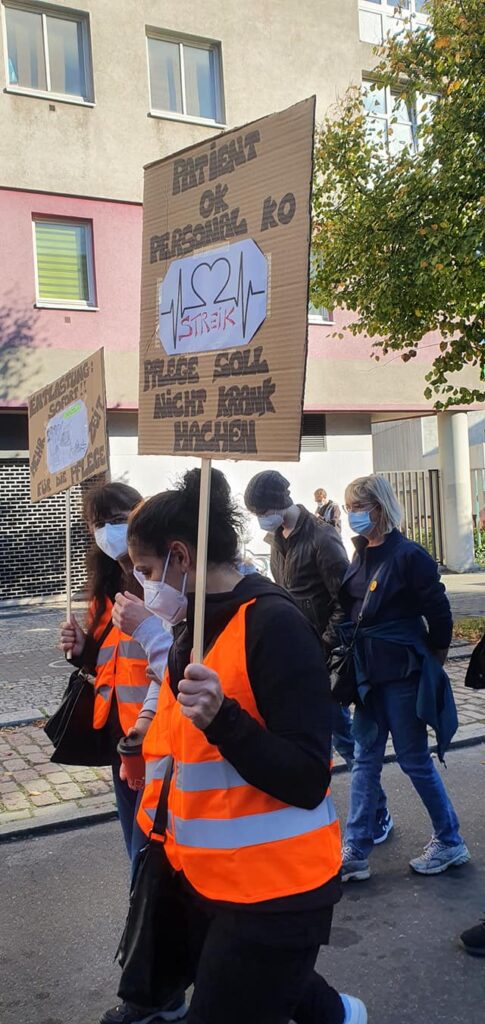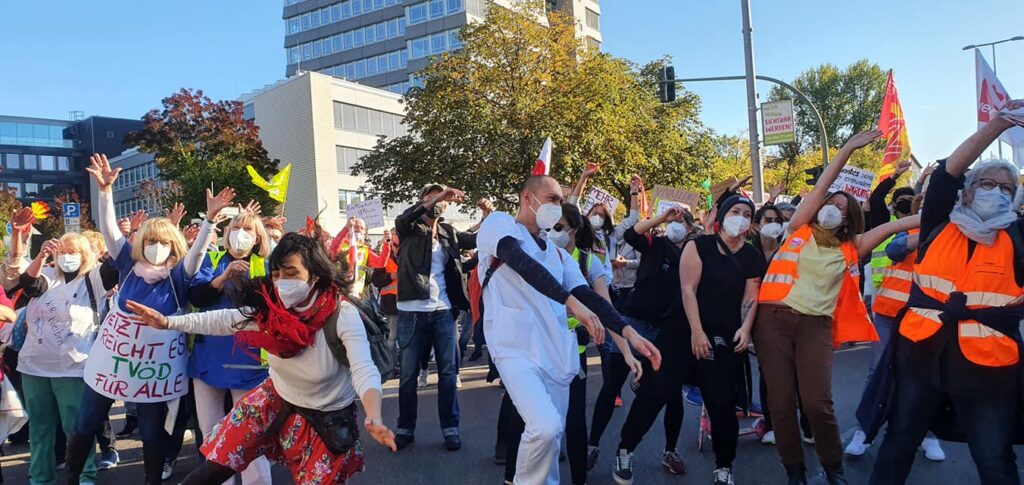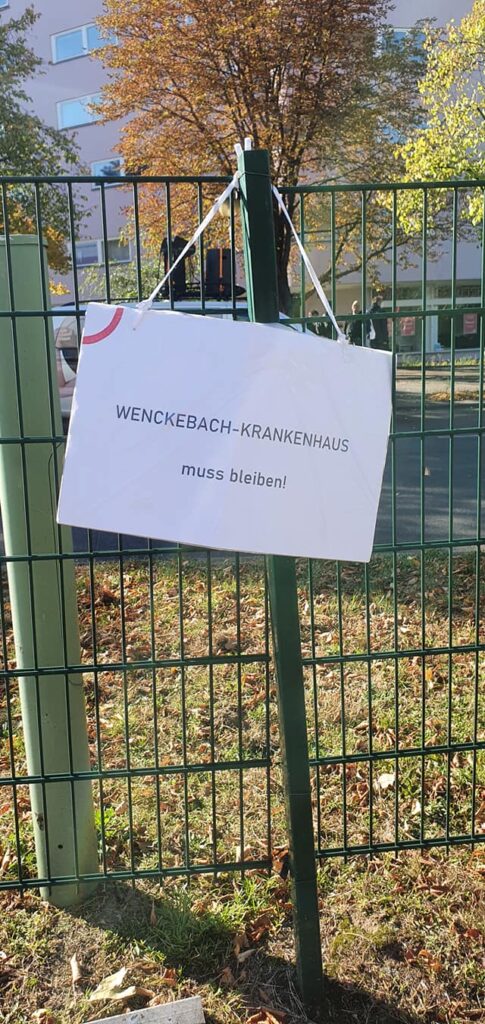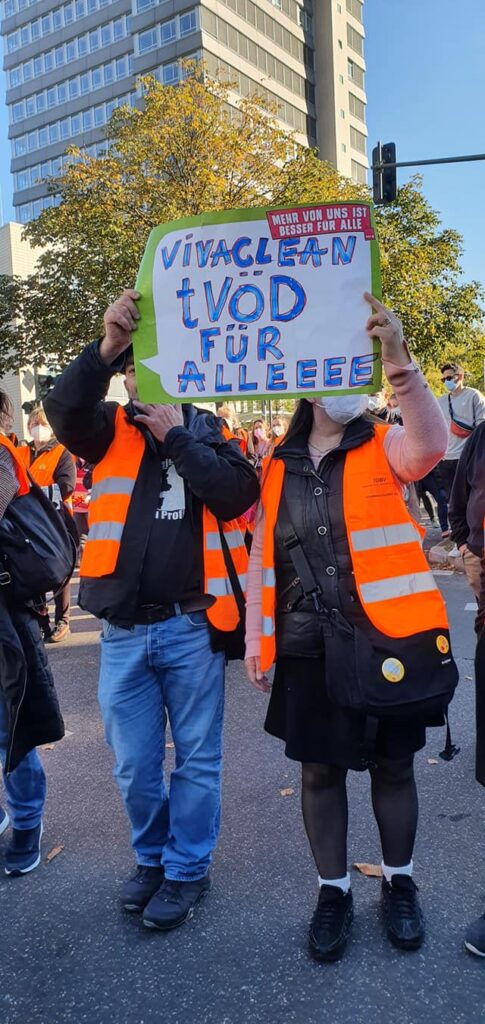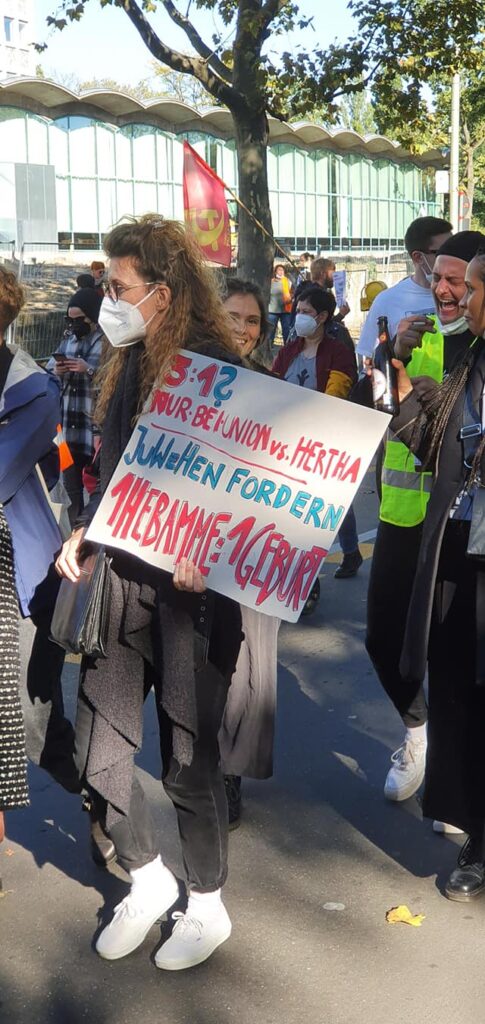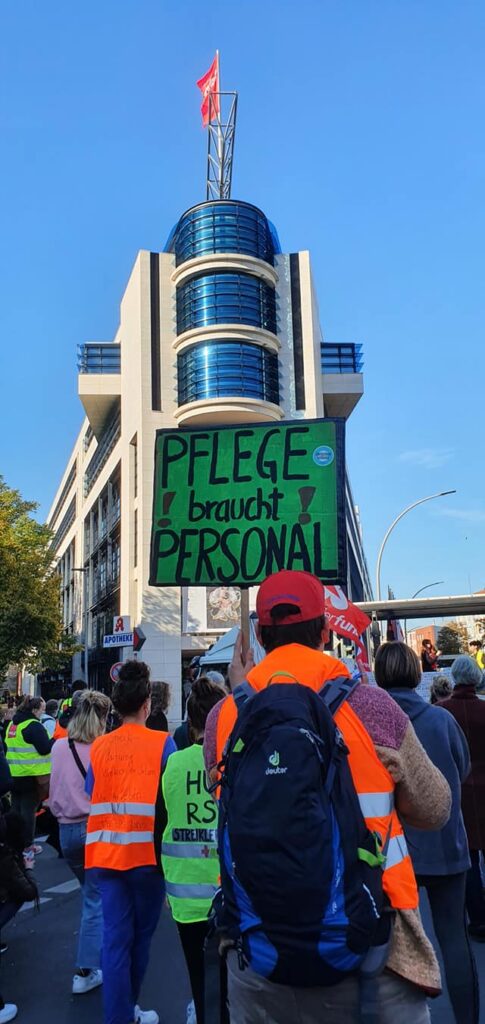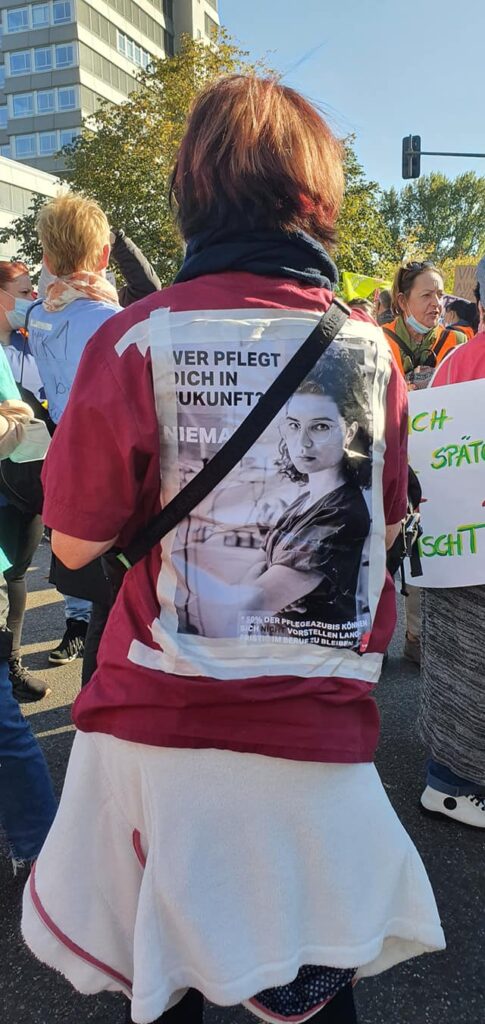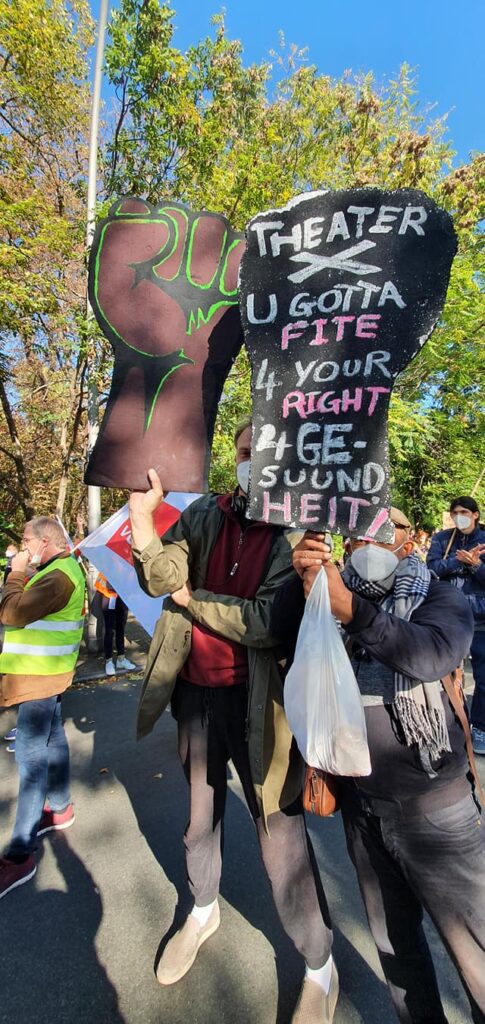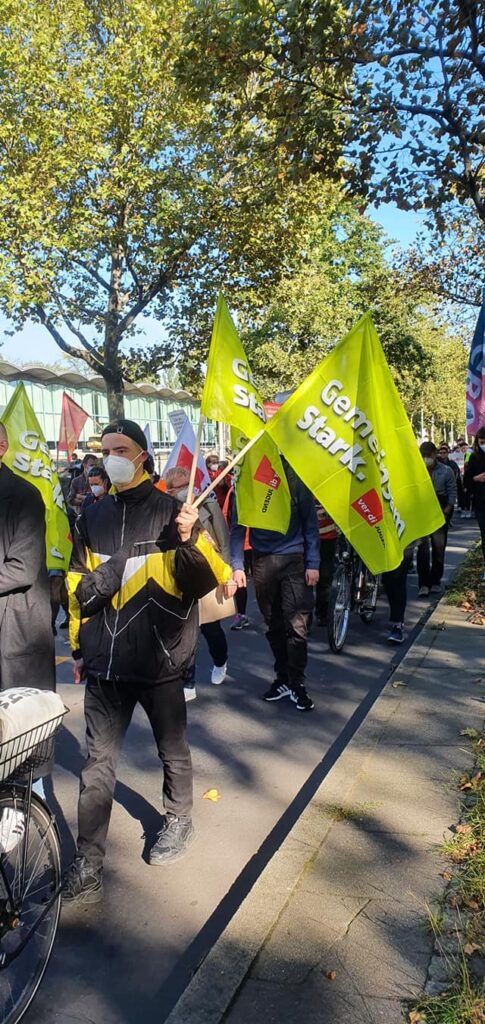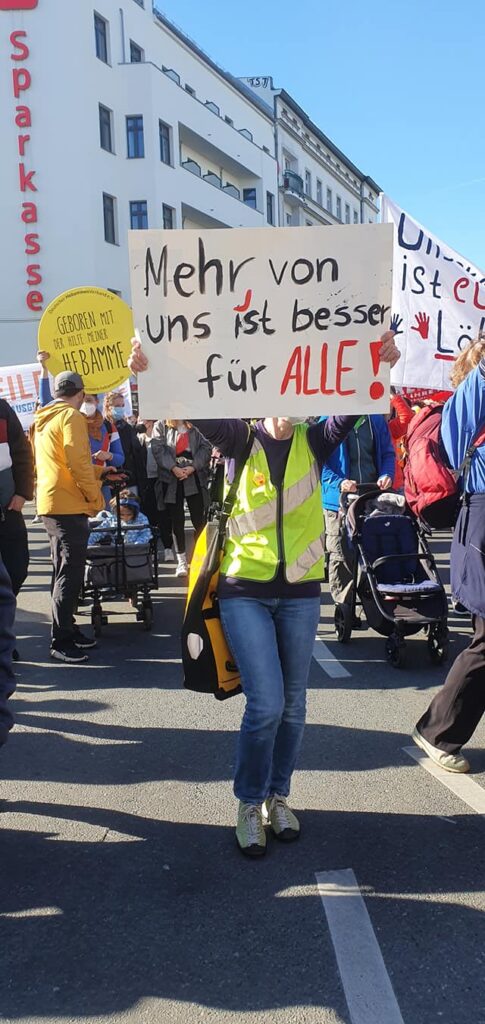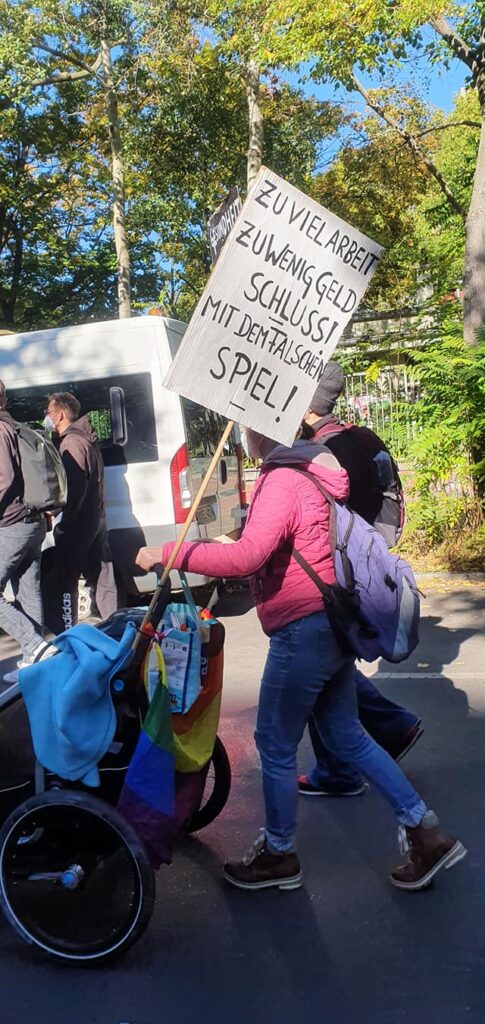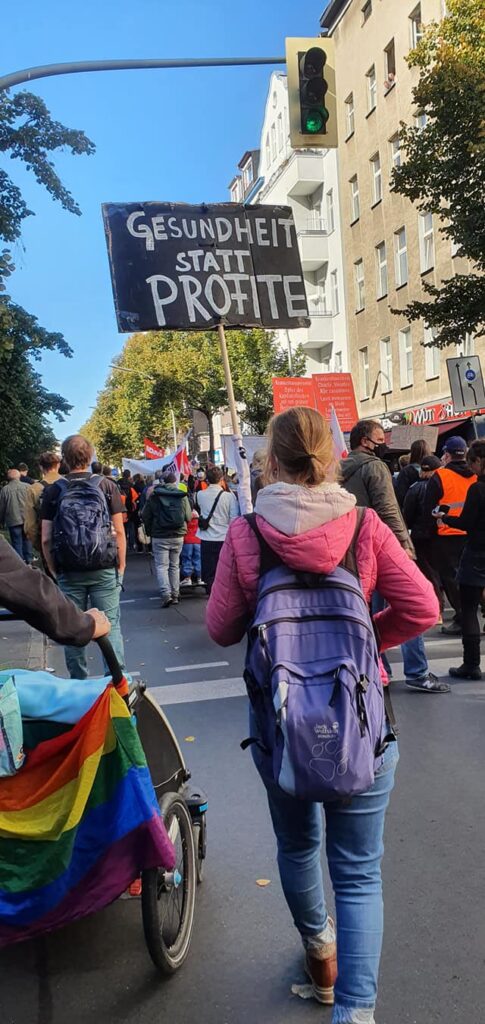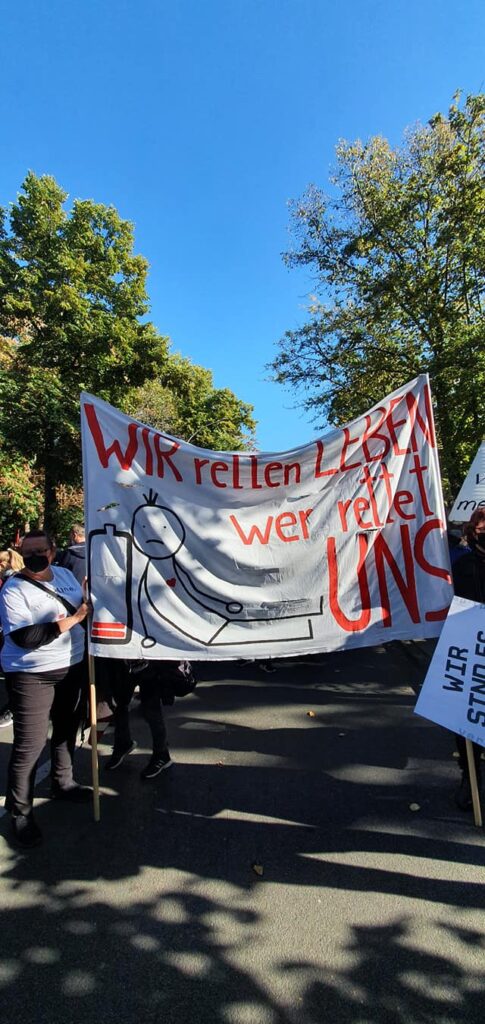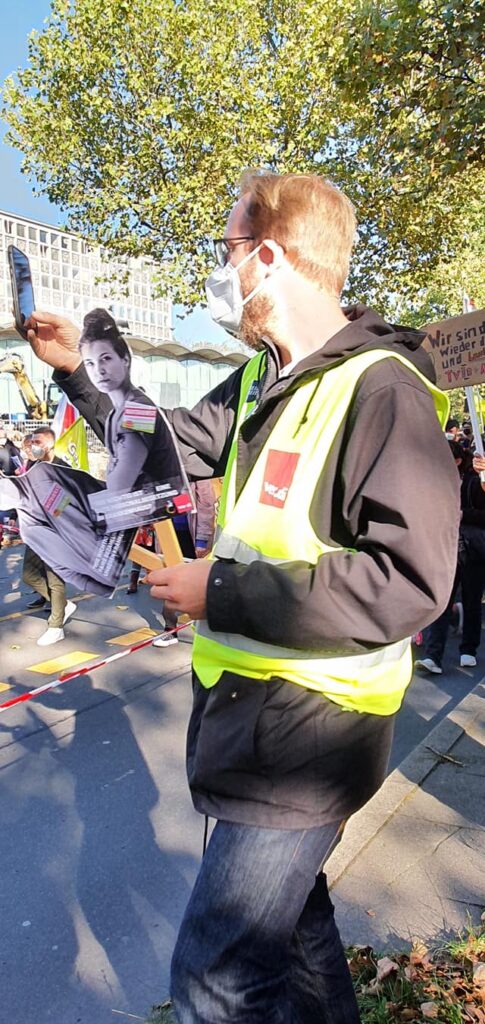It was a long election night in Berlin on the 26th of September. There were four simultaneous elections: to the Bundestag, to the Abgeordnetenhaus (Berlin Chamber of Deputies), to the district councils and also the referendum Deutsche Wohnen & Co. enteignen (DWE). The latter aims to expropriate and socialise the homes of those real estate companies that own more than 3,000 units, meaning the socialisation of some 240,000 homes across Berlin into public hands. During the count, the last data to be published were those of the referendum. The first results and the first estimates made the activists jump out of their chairs: the referendum obtained broad support, which was confirmed as the hours went by, while a historic turnout (75%) gave the referendum a strong legitimacy.
The final result was 59.1% support for the referendum on the valid vote (56.4% counting the invalid vote) and 40.9% against (39% with the invalid vote). The message of more than one million Berliners was clear. It is time to expropriate the big real estate companies, socialise housing and return it to public hands, stopping the real estate and financial capital that has plundered Berlin in the last decades.
This result does not take into account that almost a quarter of Berlin’s adult population, could not vote. That is those without German nationality, but who are particularly unprotected from a predatory market due to their precarious situation, and are especially discriminated against in the housing market with xenophobic and racist practices. In this sense, within DWE, the group ‘Right to the City’ for all has managed to involve and mobilise a part of the population that was on the margins of the campaign. This was the migrant communities who often do not feel they are appealed to. They now demanded both the right to housing for all and the right to vote for all. Because fair socialisation cannot happen without the support of a quarter of the population.
What next?
However, the referendum is non-binding and therefore depends on the will of the deputies sitting in the Abgeordnetenhaus and the new Berlin government. That will emerge from the negotiations to implement and enforce the referendum. The Berlin elections resulted in a Social Democratic victory for the SPD (21.4%), several points ahead of the Greens (18.9%) and the Christian Democrats of the CDU (18.1%). Behind – Die Linke, the left, with 14% and far behind, the far-right AfD (8%) and the liberals of the FDP (7.2%). The political chessboard forces a tripartite government, or at least a three-way negotiation to form a government (even if one of the actors in the negotiation later decides not to enter the government).
In this context, the SPD is piloting these negotiations with a candidate for mayor, Franziska Giffey. who had already in the campaign refused to expropriate the real estate companies regardless of the result. But who after the DWE’s resounding victory and internal pressure in her party, she has had to moderate her words and speaks of respecting the referendum, albeit in a vague way. The Greens will be a certain travelling companion in this new government. During the campaign, they showed reserved support for DWE, arguing that expropriation should be a last resort to control the housing market. It is worth remembering that we are at a last resort today, in a highly stressed market. Recall the Constitutional Court in Karlsruhe overturned the “Mietendeckel” law of the previous left-wing coalition government where Die Linke housing senator Katrin Lompscher, had frozen price rises for five years and lowered rental contracts above €/m2 price limits. The housing situation in Berlin, a favourite city of finance and real estate capital for rapacity, is now at a point where only radical measures such as expropriation can be applied.
The SPD and the Greens are in a three-way negotiation, where the third partner is unclear. That could be Die Linke, the only party that has supported the referendum from the outset and without “buts”. But it could also be the liberals of the FDP, a party that strongly rejects the implementation of the referendum. In this context, in which the SPD sometimes seems more inclined to govern with the FDP, the pressure to re-establish a left-wing government is growing. The youth organisations of the parties, JUSOS (SPD), Grüne Jugend (Die Grüne) and Linksjugend (Die Linke), have issued a statement in favour of a left-wing coalition. This is the government formula that is considered to be the only one that can implement the referendum. Die Linke is considered to be the only guarantee of pressure to push through the law on the expropriation and socialisation of the large real estate companies.
That is why the DWE campaign is also increasing pressure on the SPD to ensure that, on the one hand, the will of the people as expressed at the referendum is fulfilled and, on the other hand, that the SPD does not throw itself into the arms of the FDP, because that would be a very bad message. However, even if a left-wing government is formed, expropriation and socialisation are not guaranteed. The SPD or even the Greens can empty a law of its content which then does not really express the will of the people and the DWE movement. At this point, the compensation that the real estate companies should receive for the expropriated houses comes into play, and here, Die Linke. is the only party that is prepared to support the sums proposed by DWE, i.e. those that guarantee that the expropriation will be below market price. DWE and Die Linke simply want Article 14.3 of the German Constitution to be complied with regarding compensation for expropriation, which has to be aimed at the common good and be a balancing of the interests of the parties involved. Any compensation based on market value would only and exclusively defend the interests of the real estate companies and their shareholders, not those of the tenants and public administrations.
In short, an uncertain scenario is now opening up. The referendum, even if it is technically non-binding, does bind with its result the entire policy that will be developed in Berlin in the coming years. It determines the political and social agenda of the city, forces the parties to take a stand and take off their disguises. This keeps the city in a state of tense calm. A city that will not accept that the referendum is not implemented or that it is emptied of its content. Failure to implement the referendum opens up an uncertain future with unimaginable consequences. The mobilisation and the strength that DWE has generated will not be lost overnight, and betraying the will of the people could have an effect that multiplies both the strength and the scale of the struggle for decent housing.


